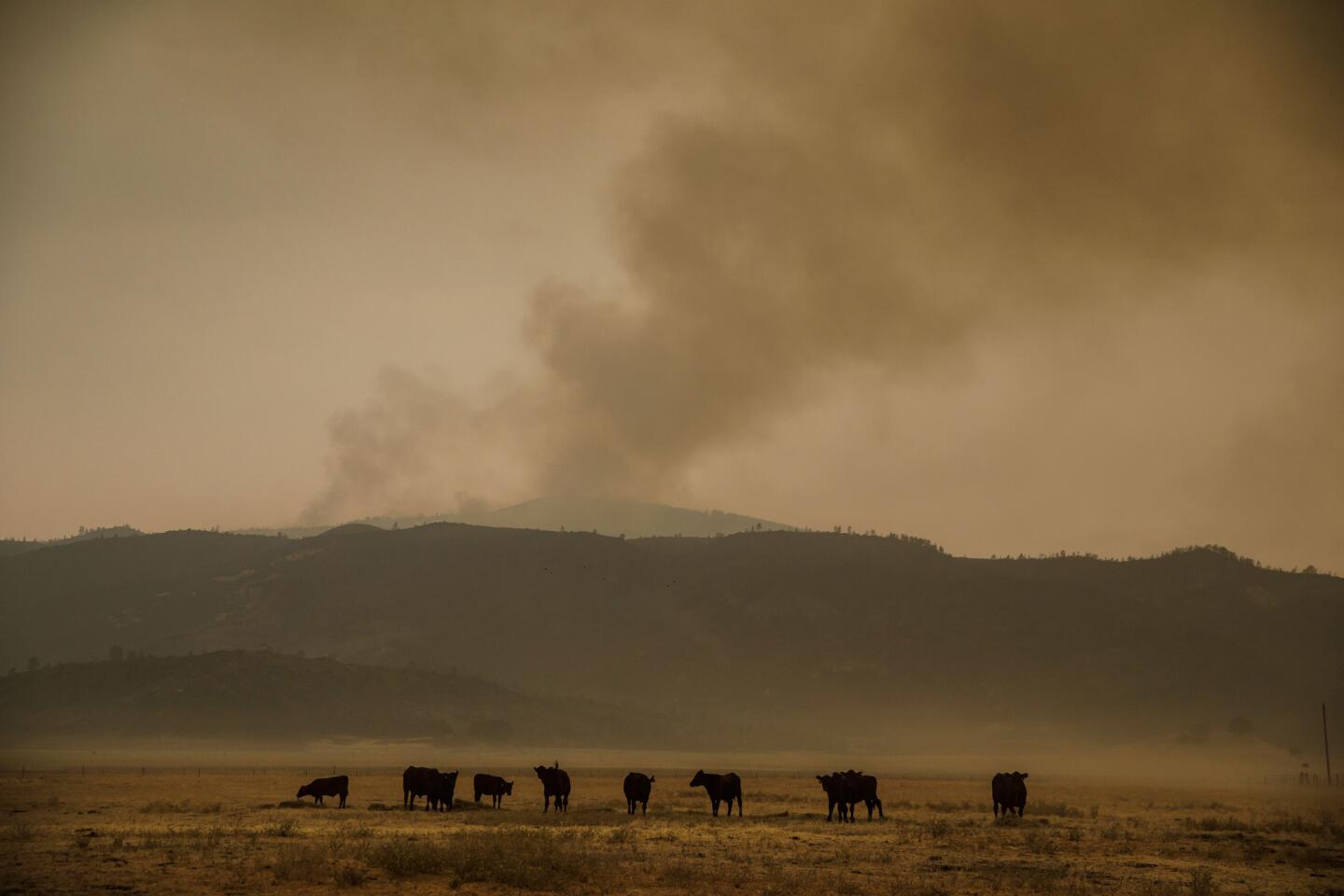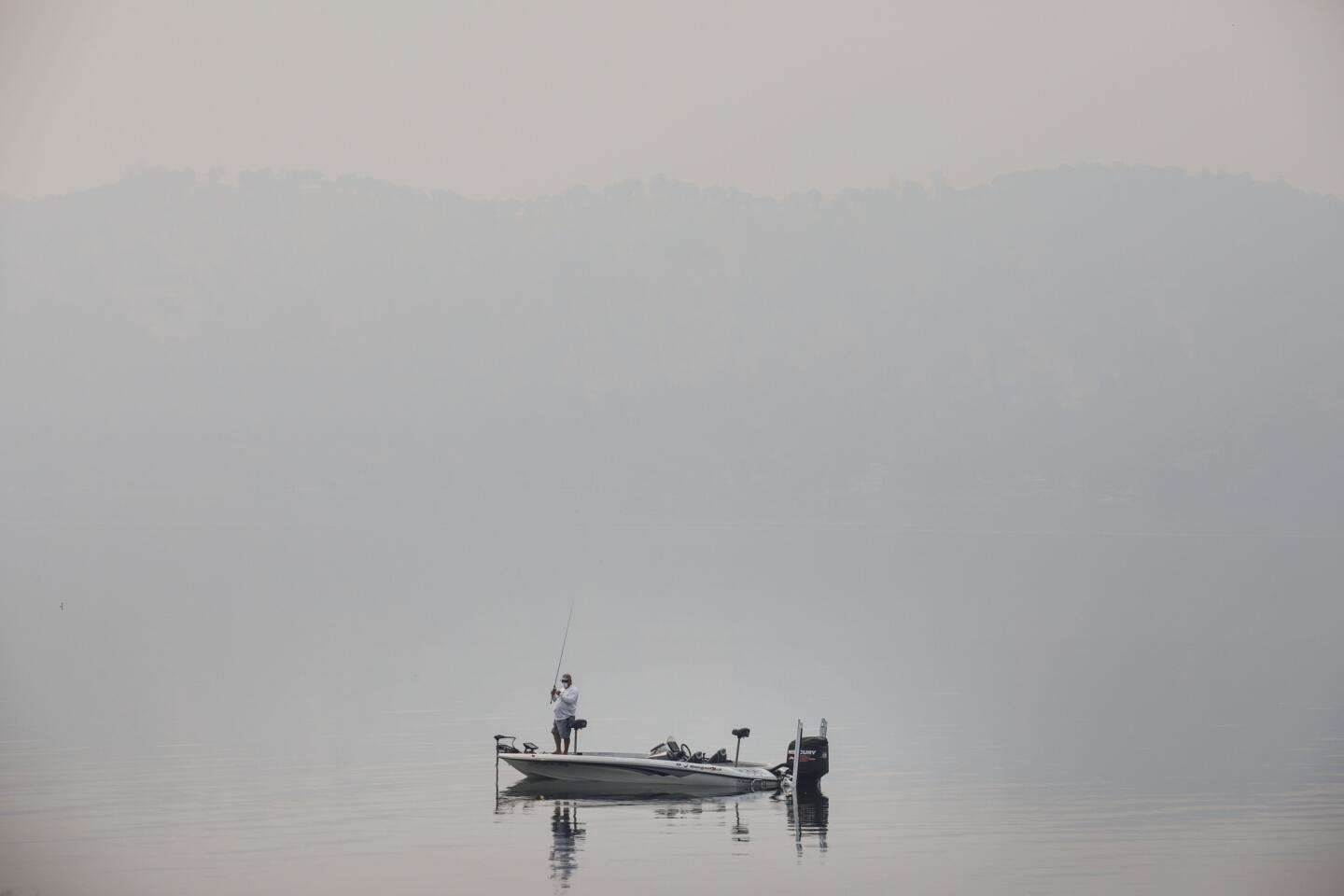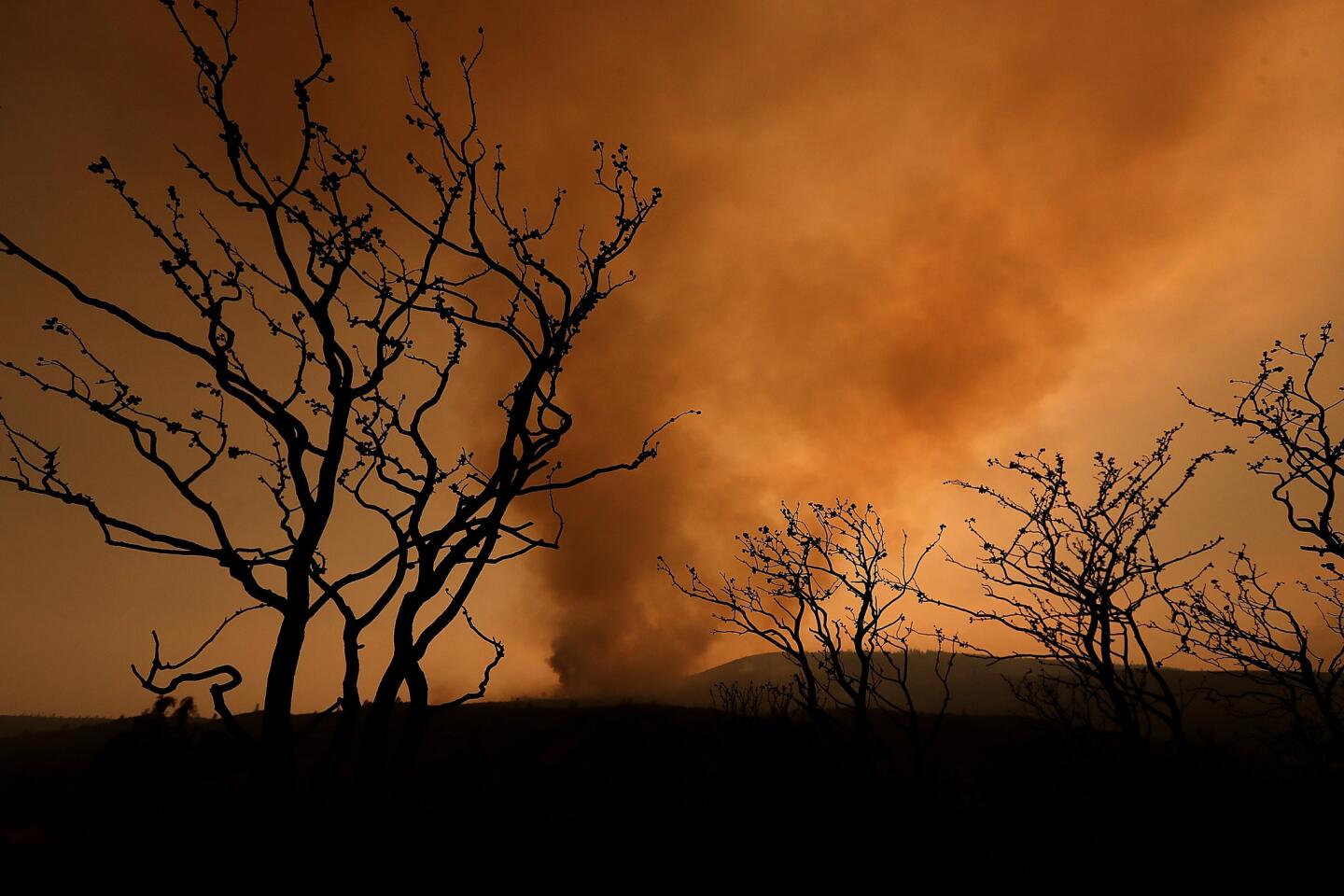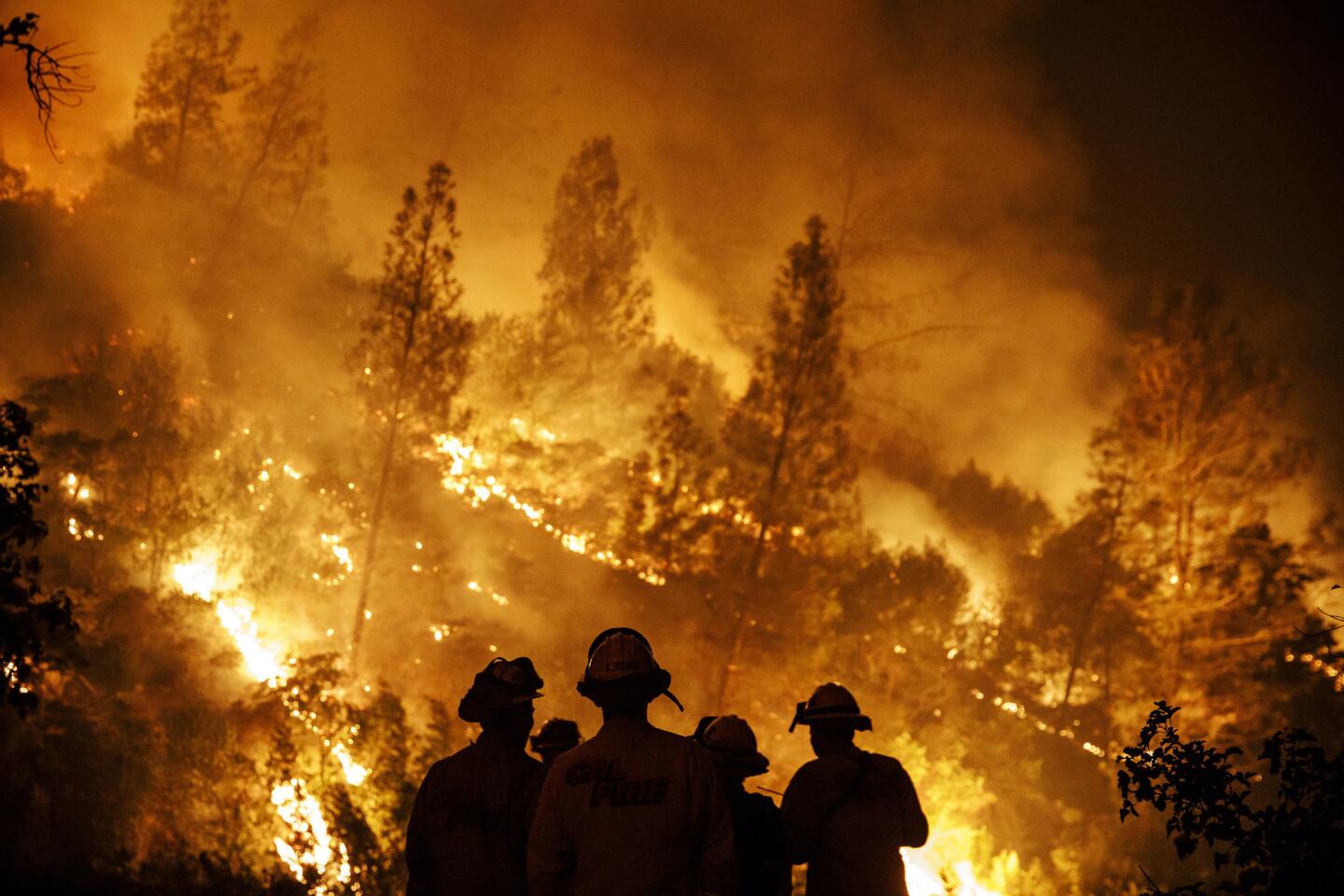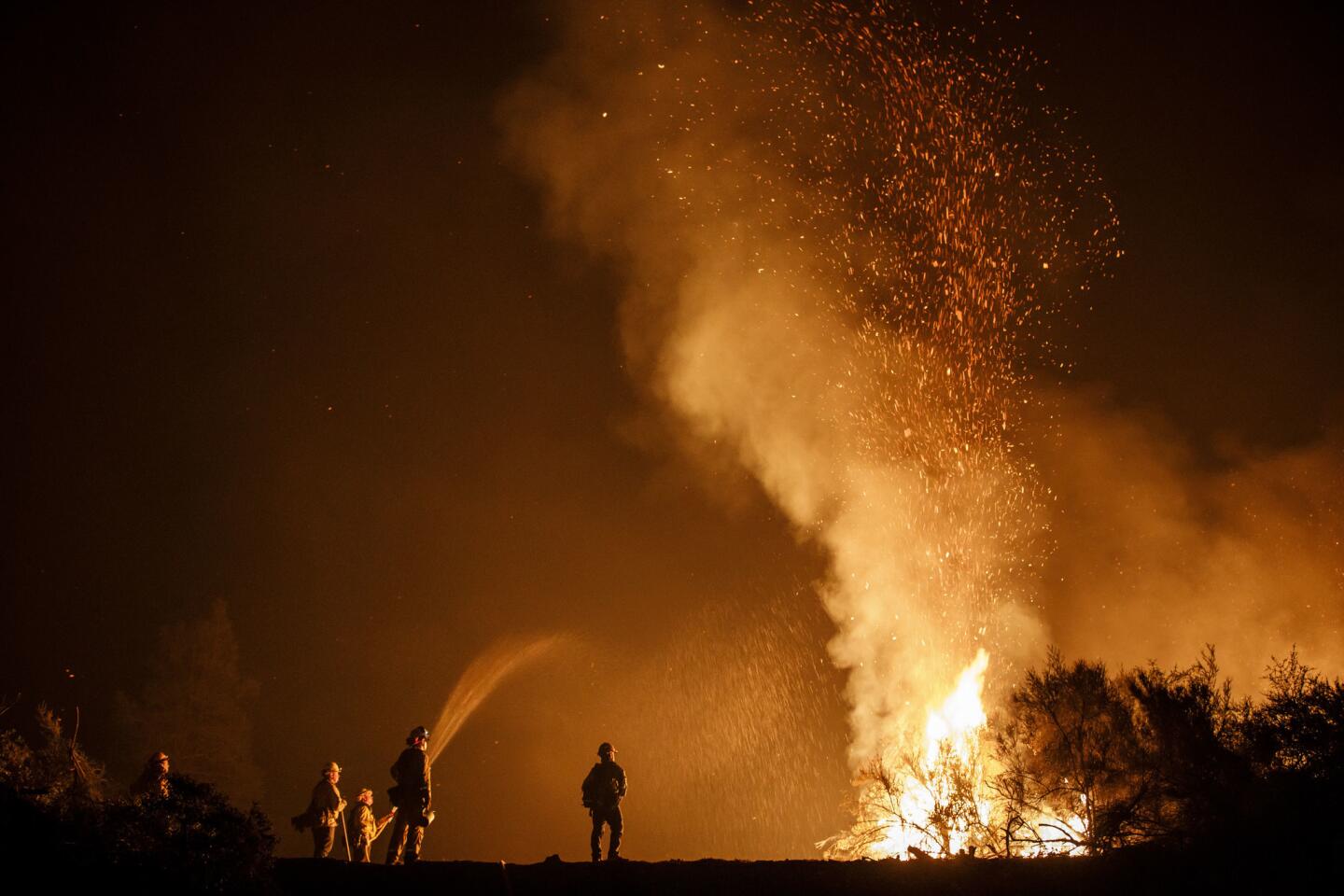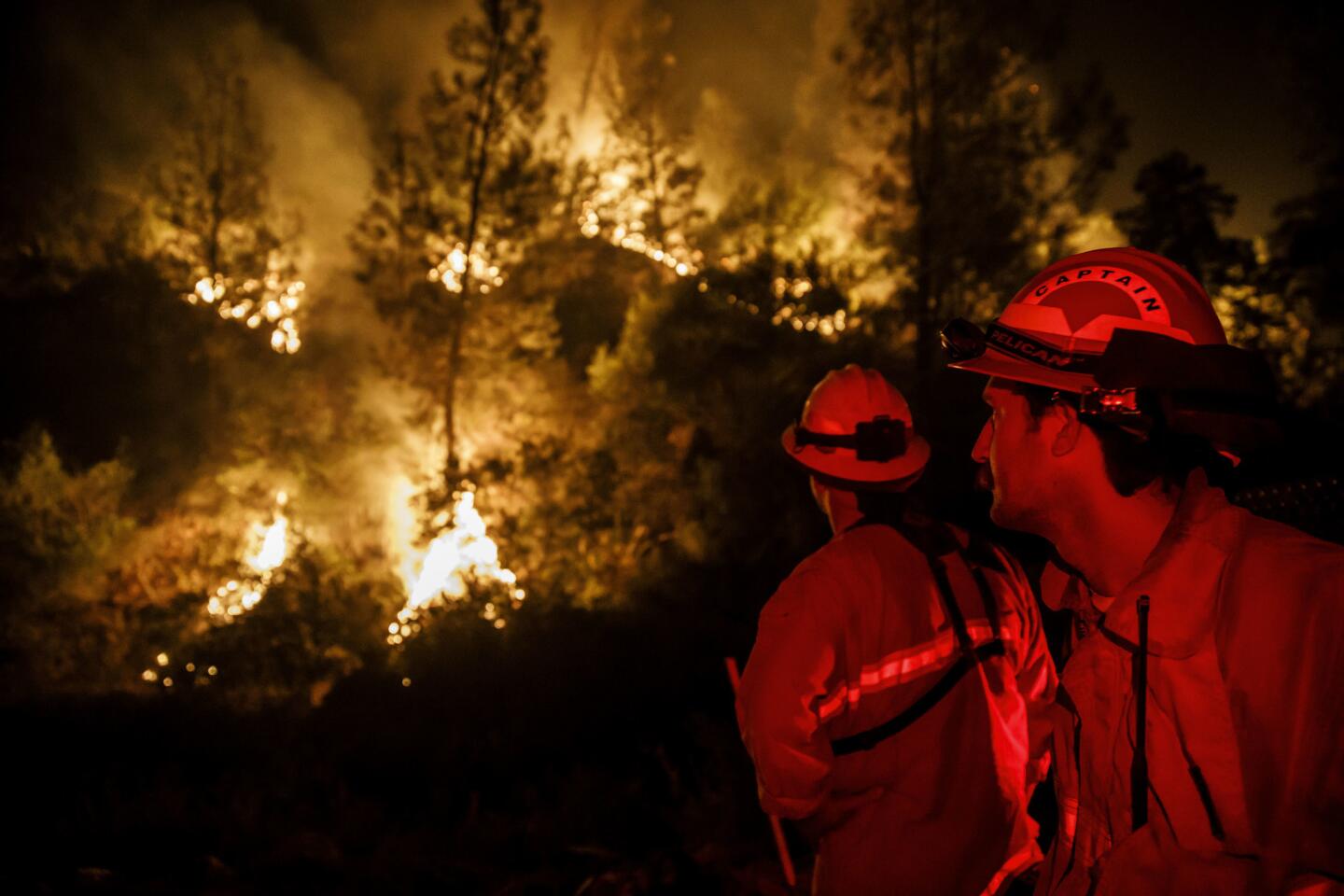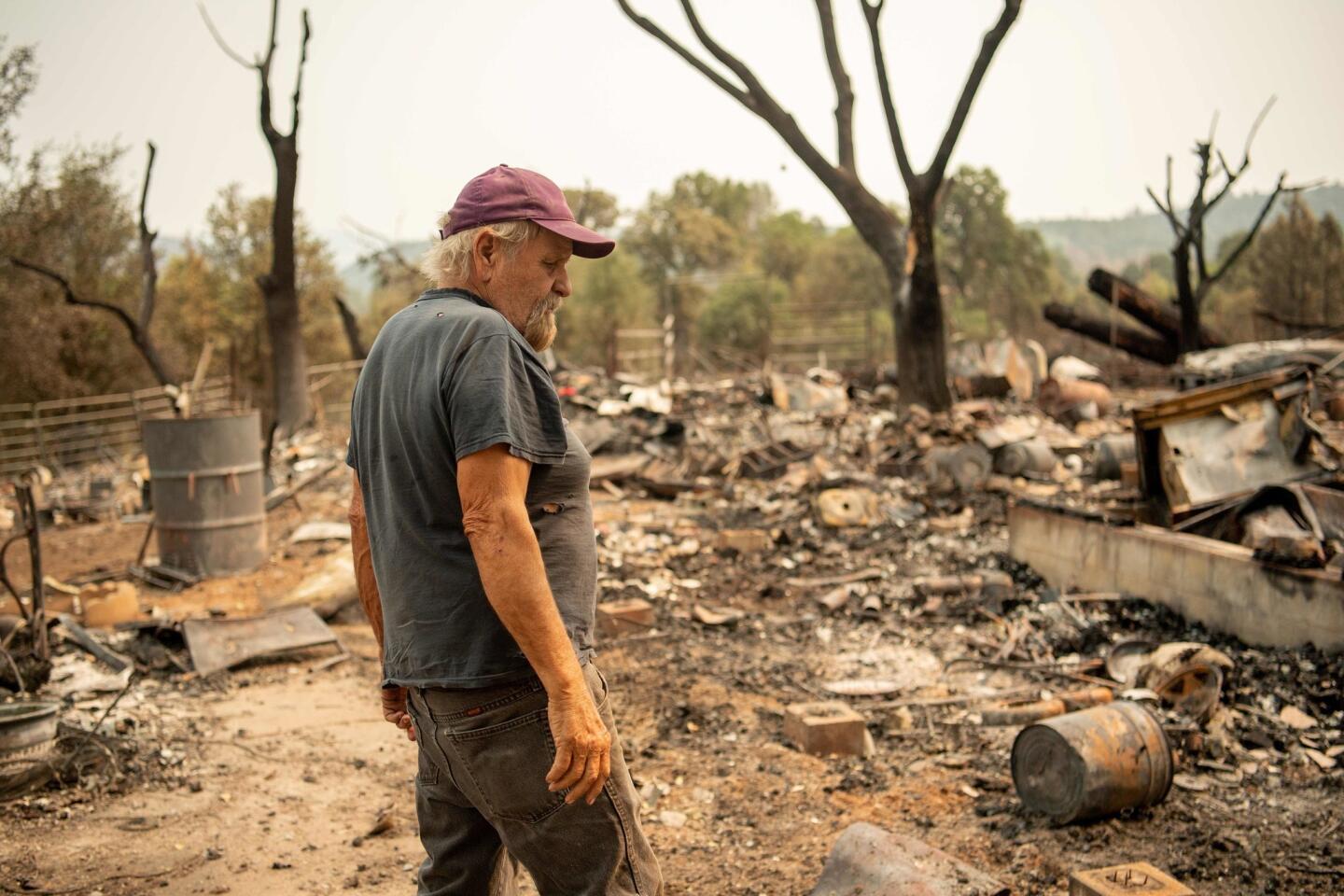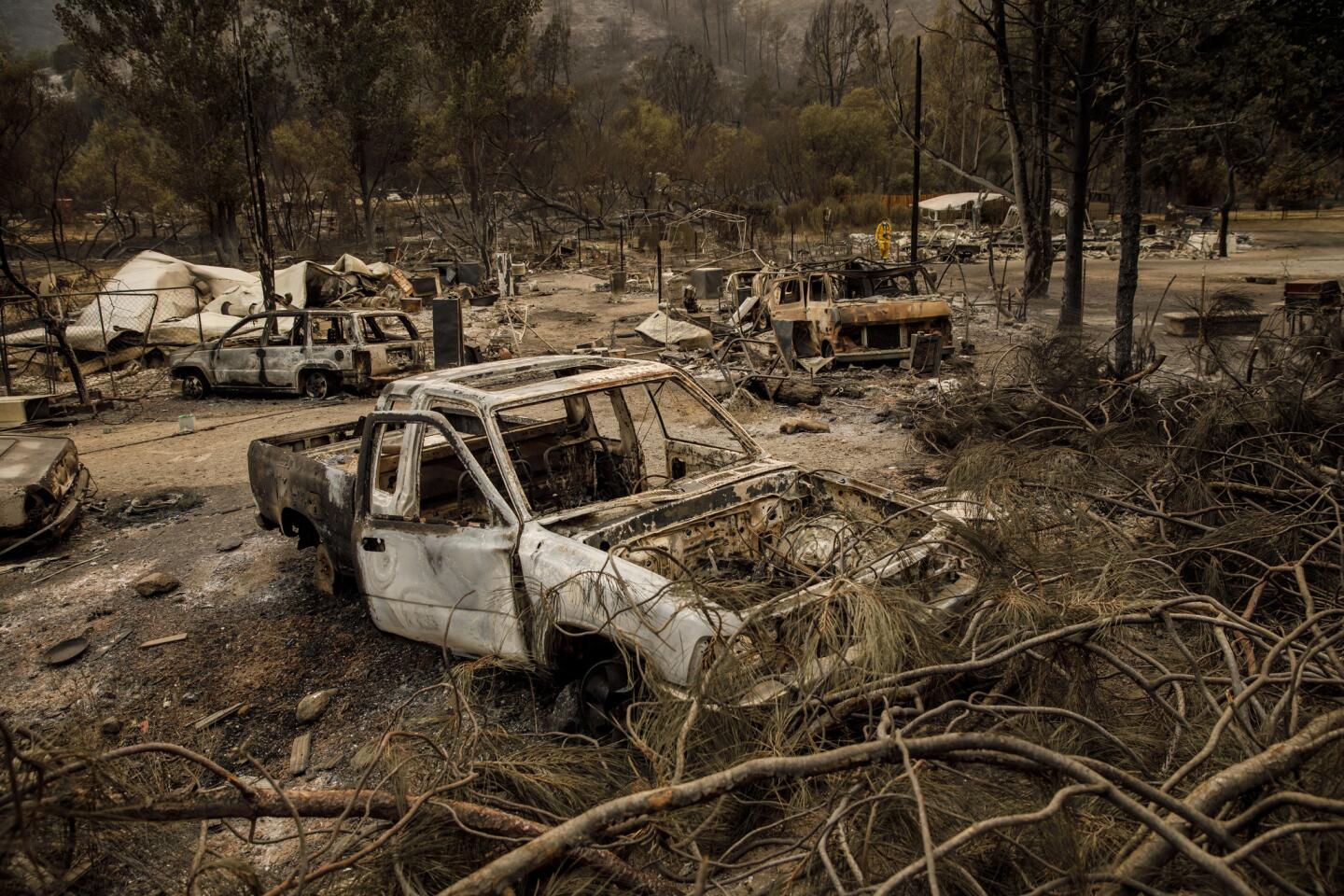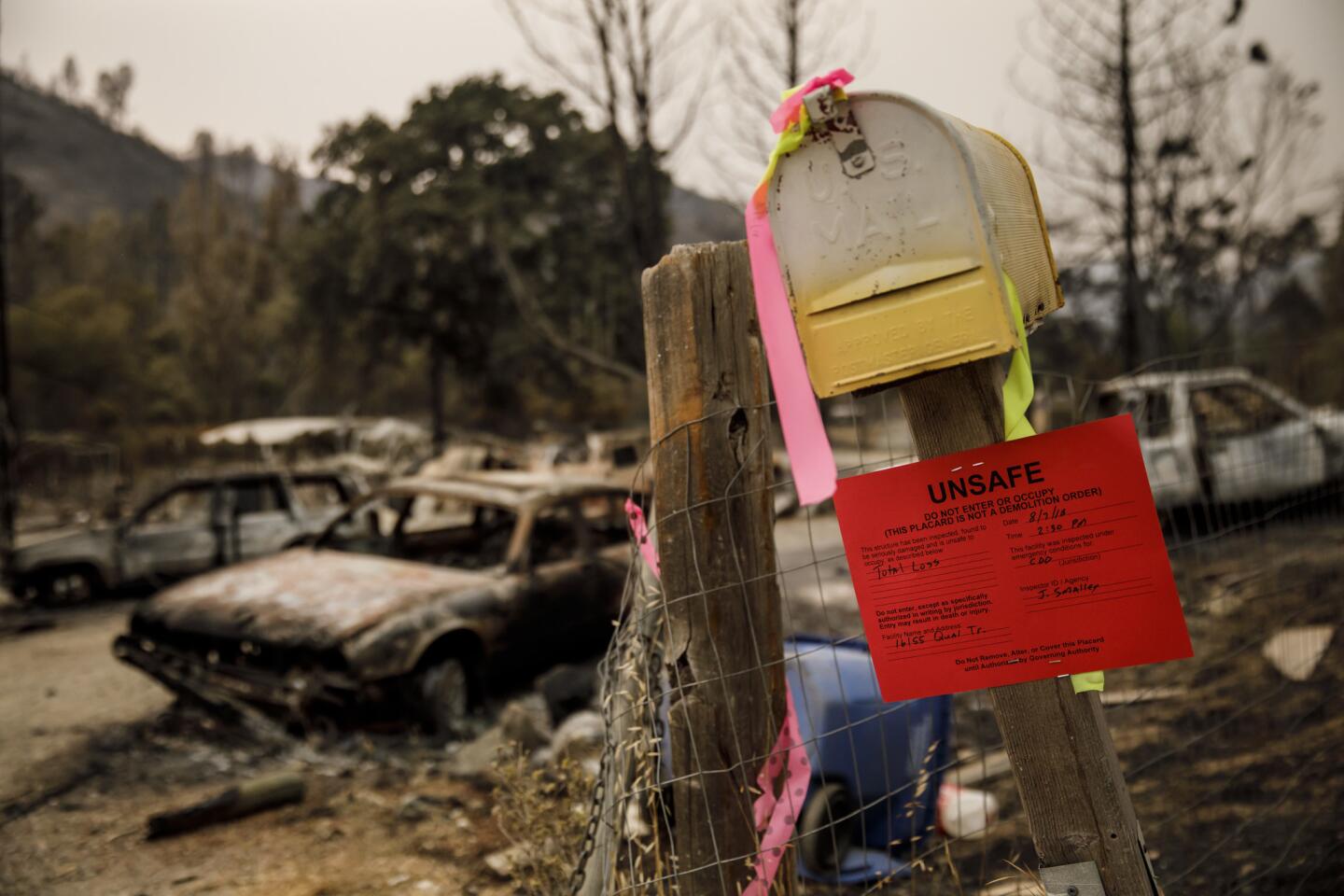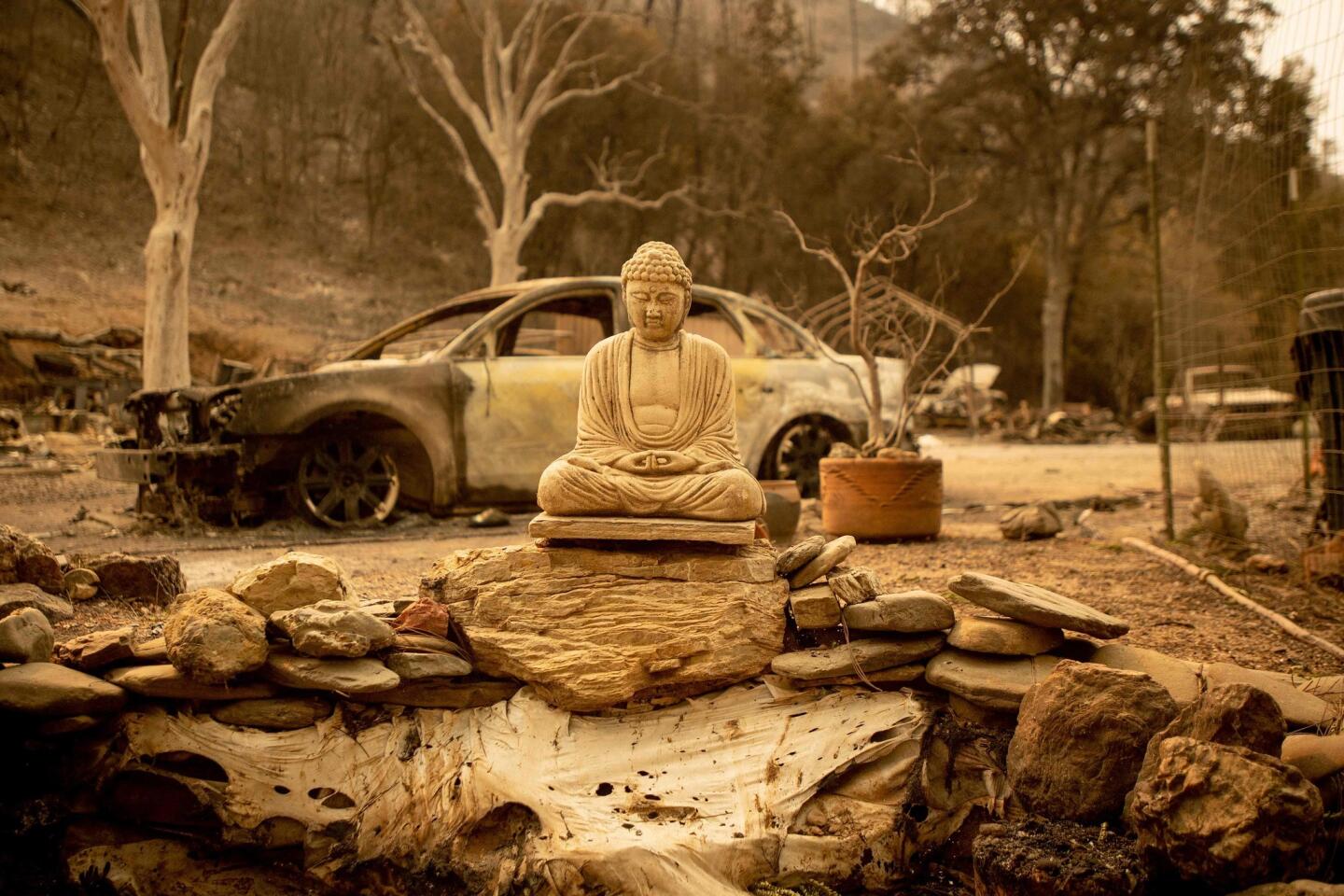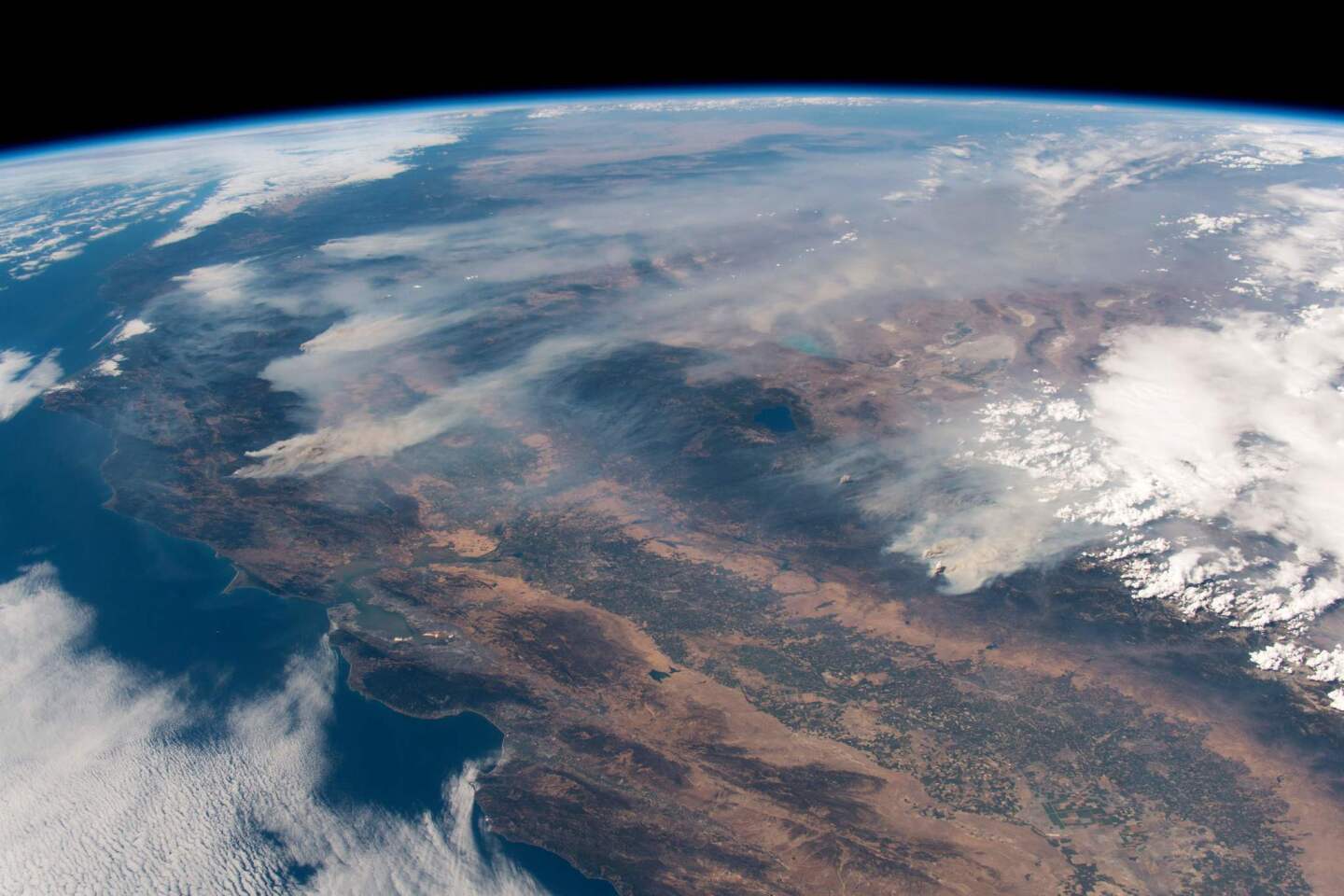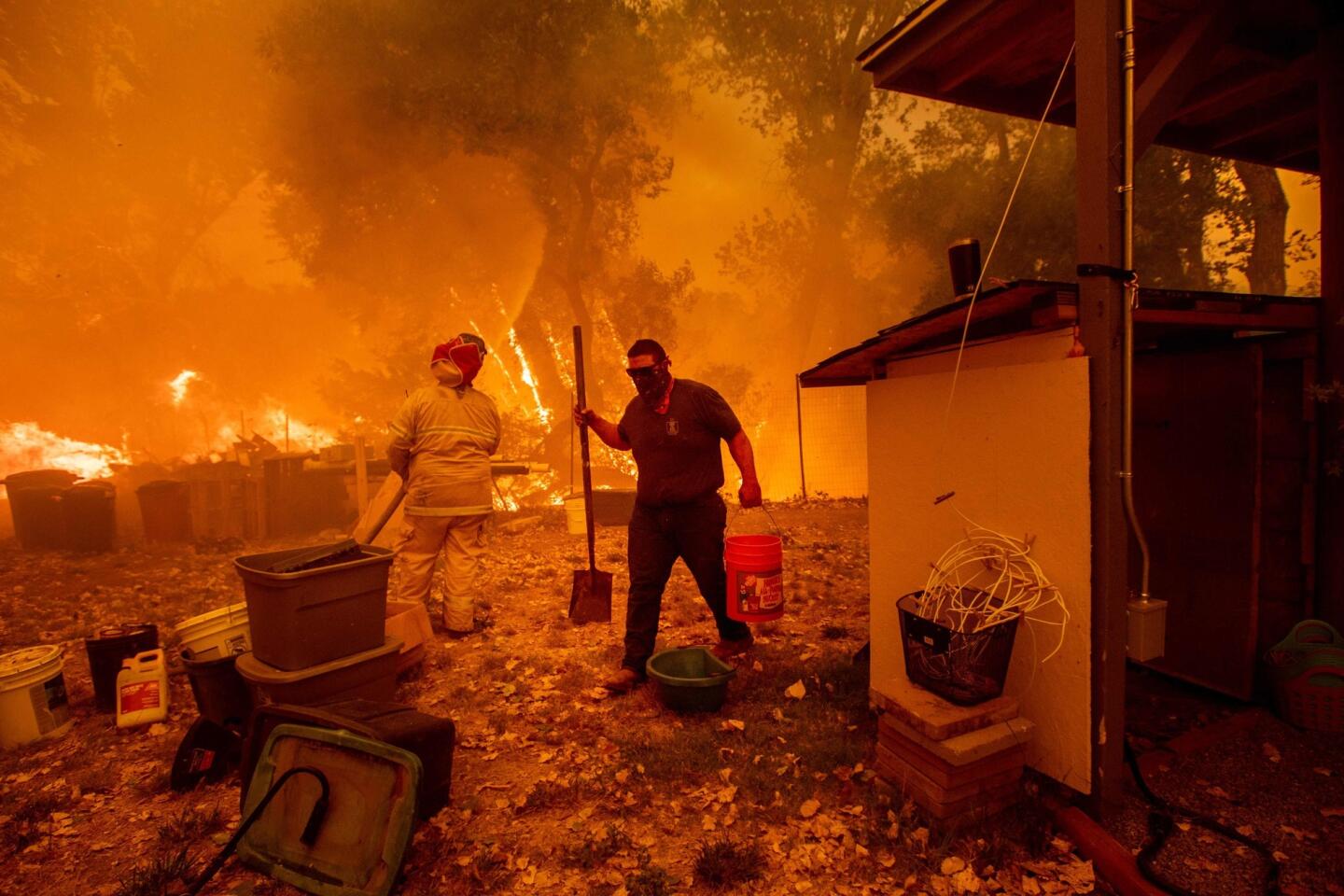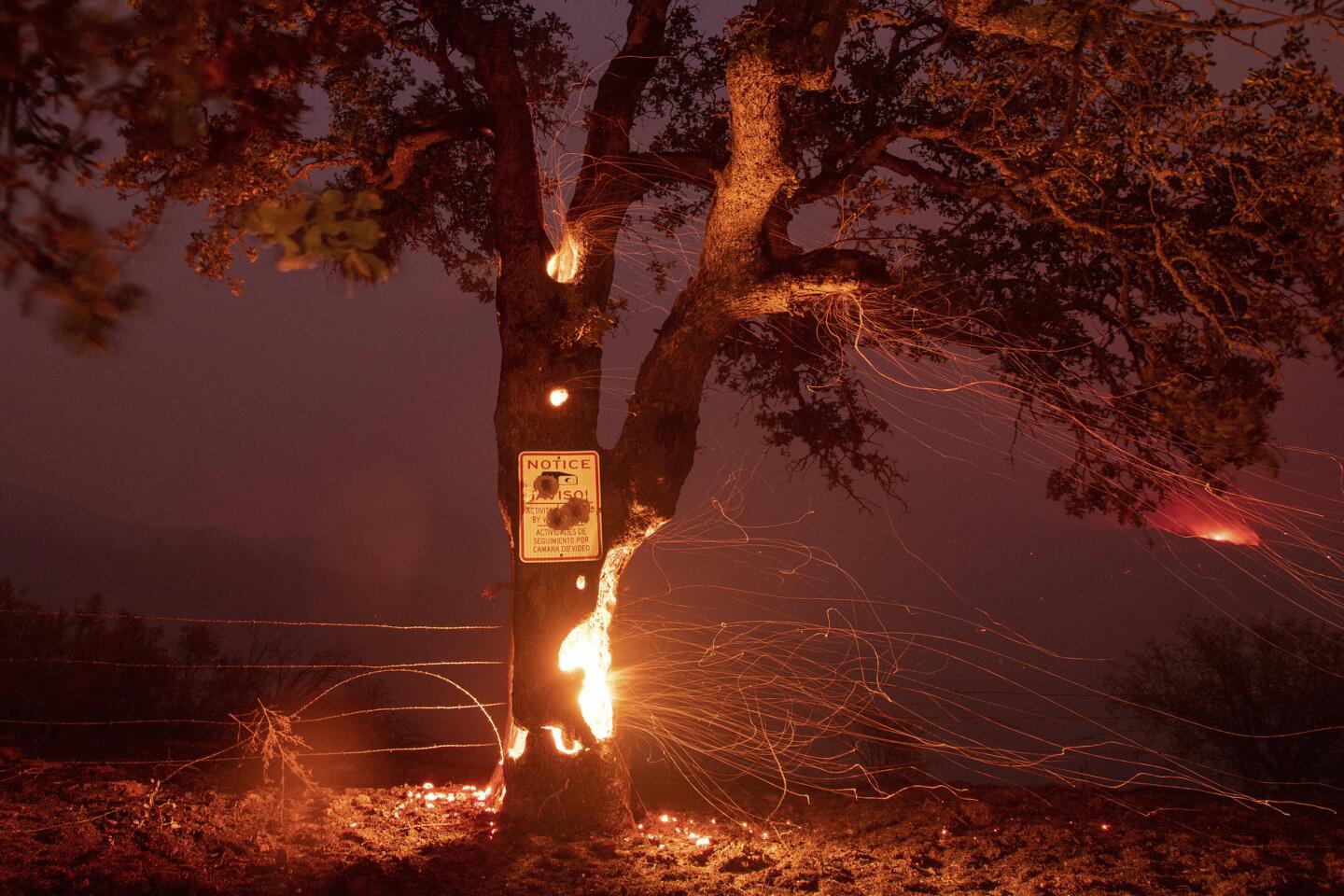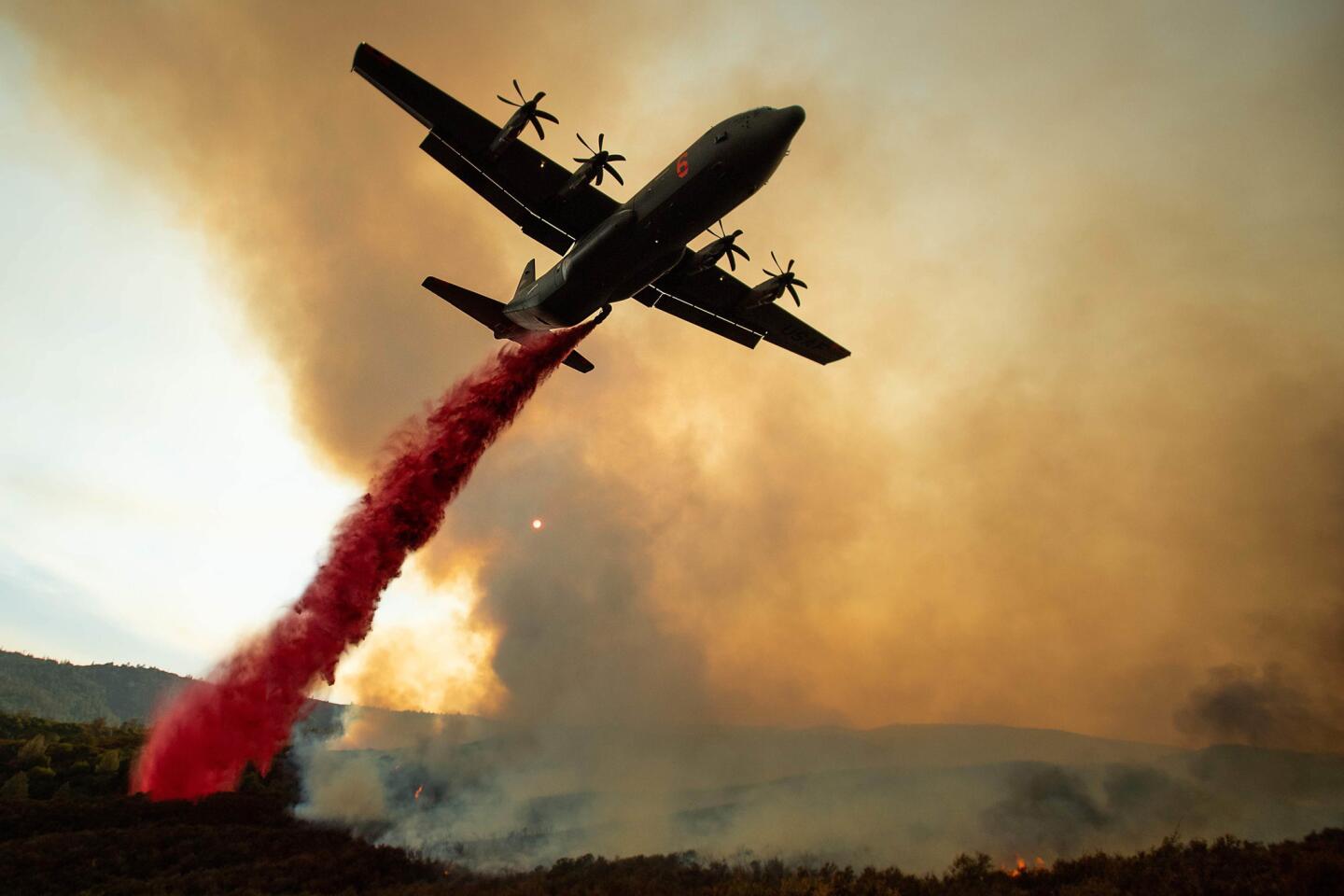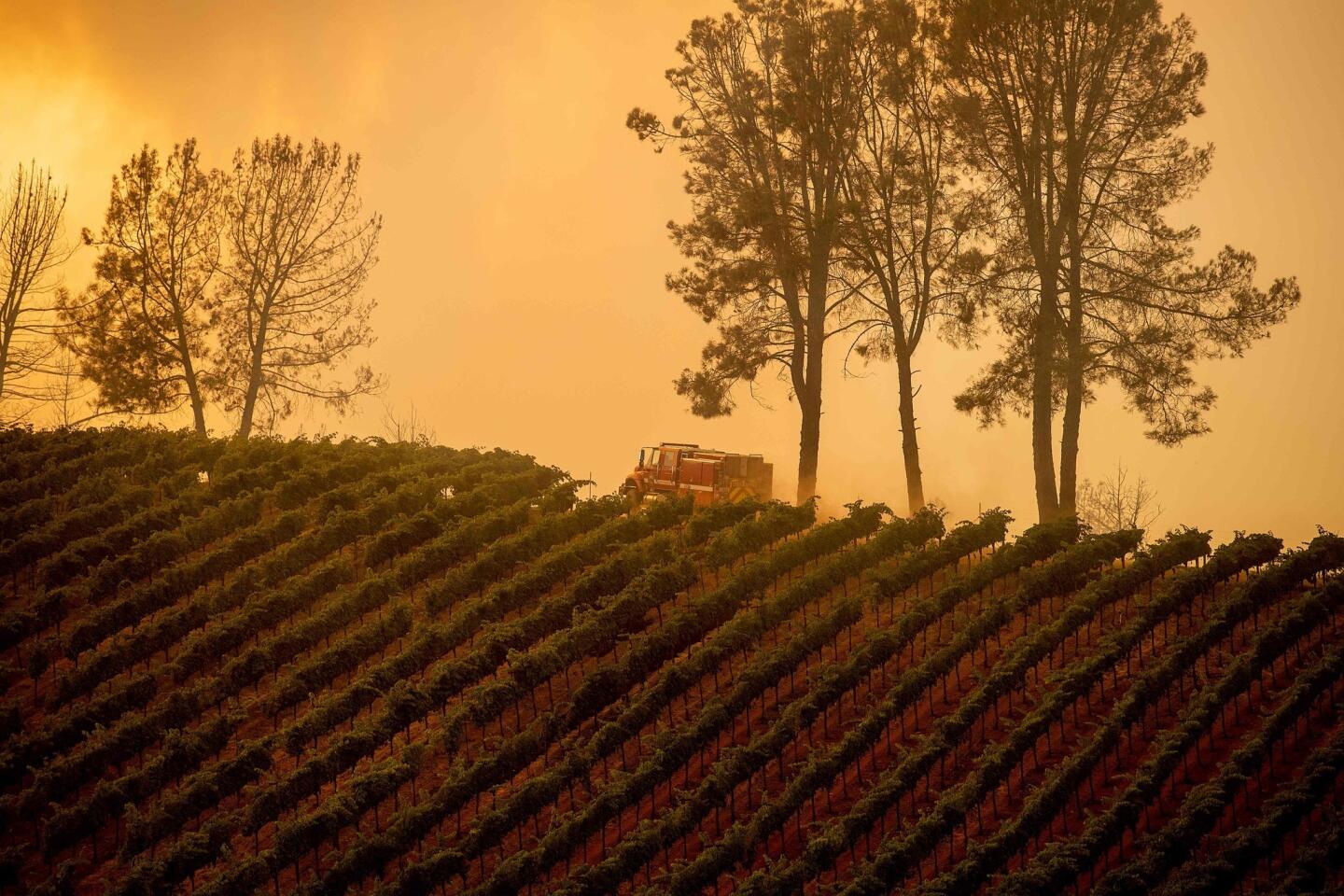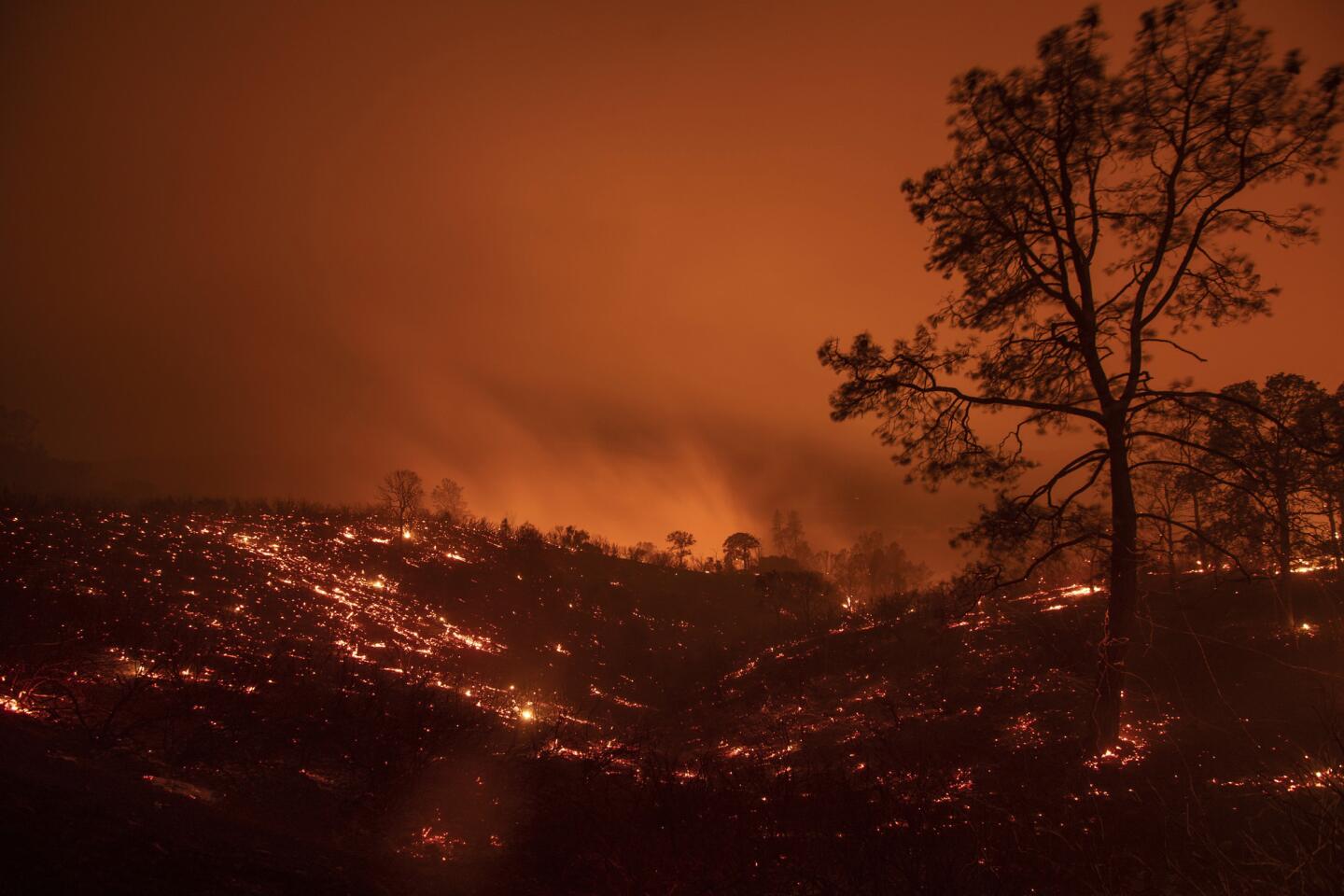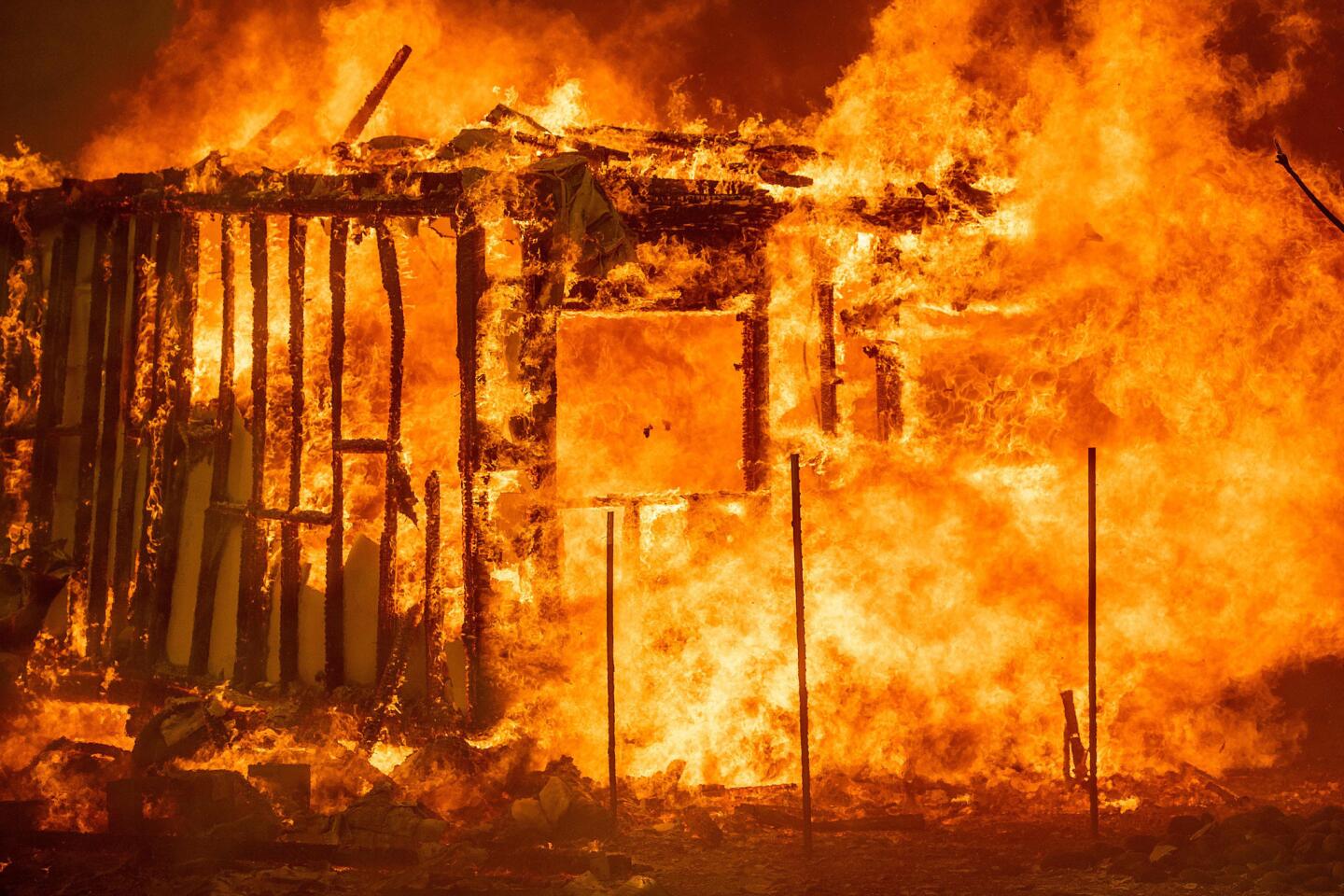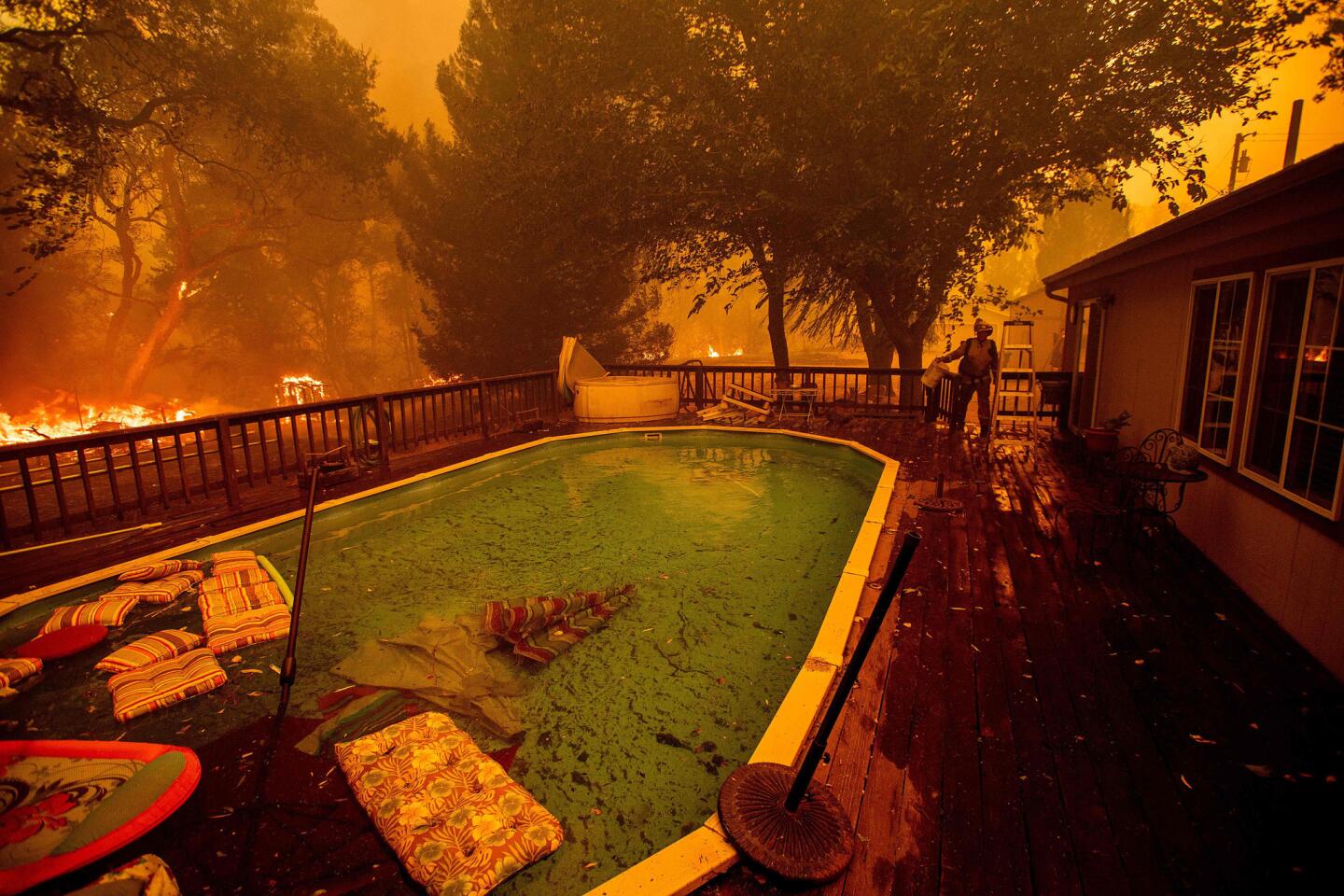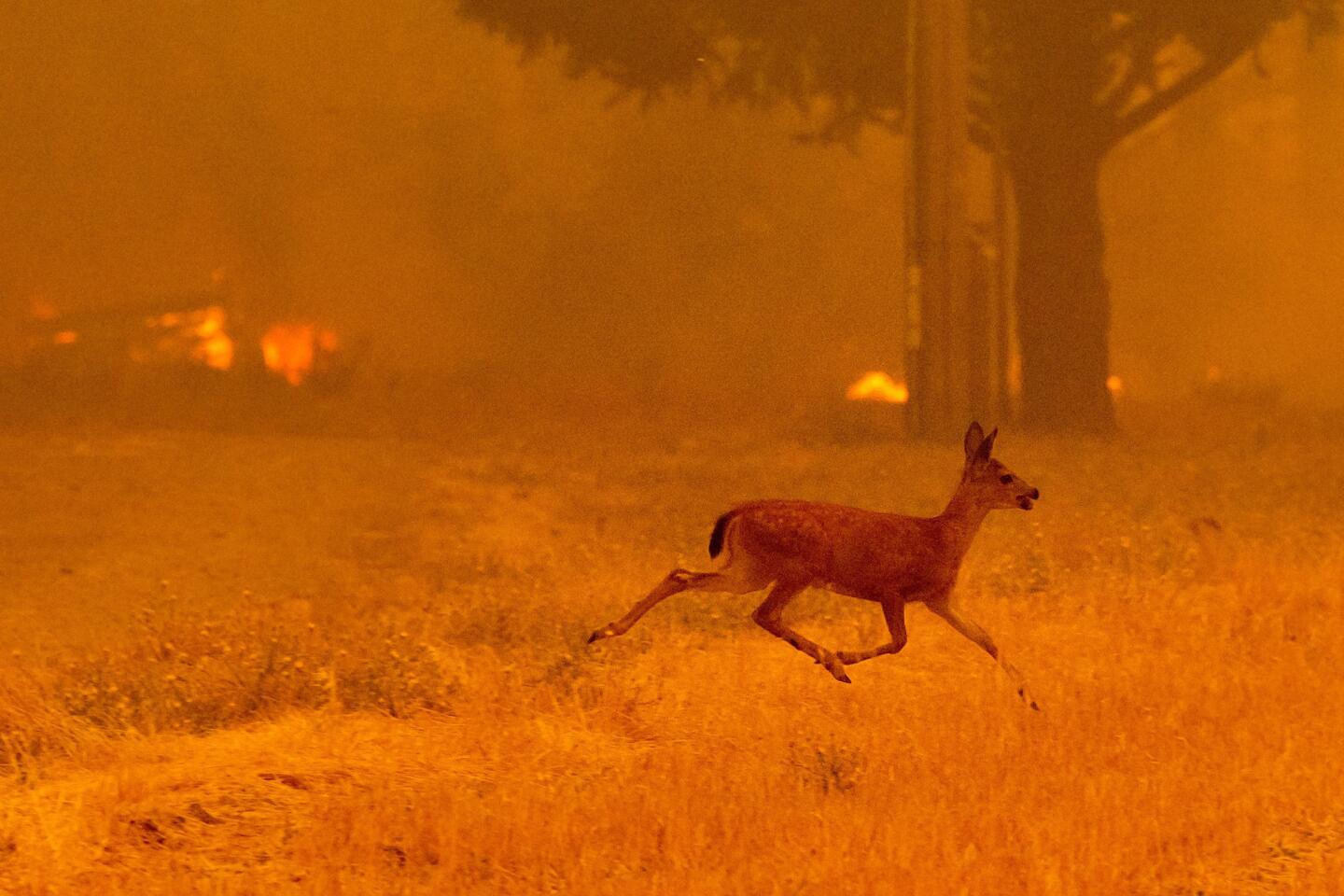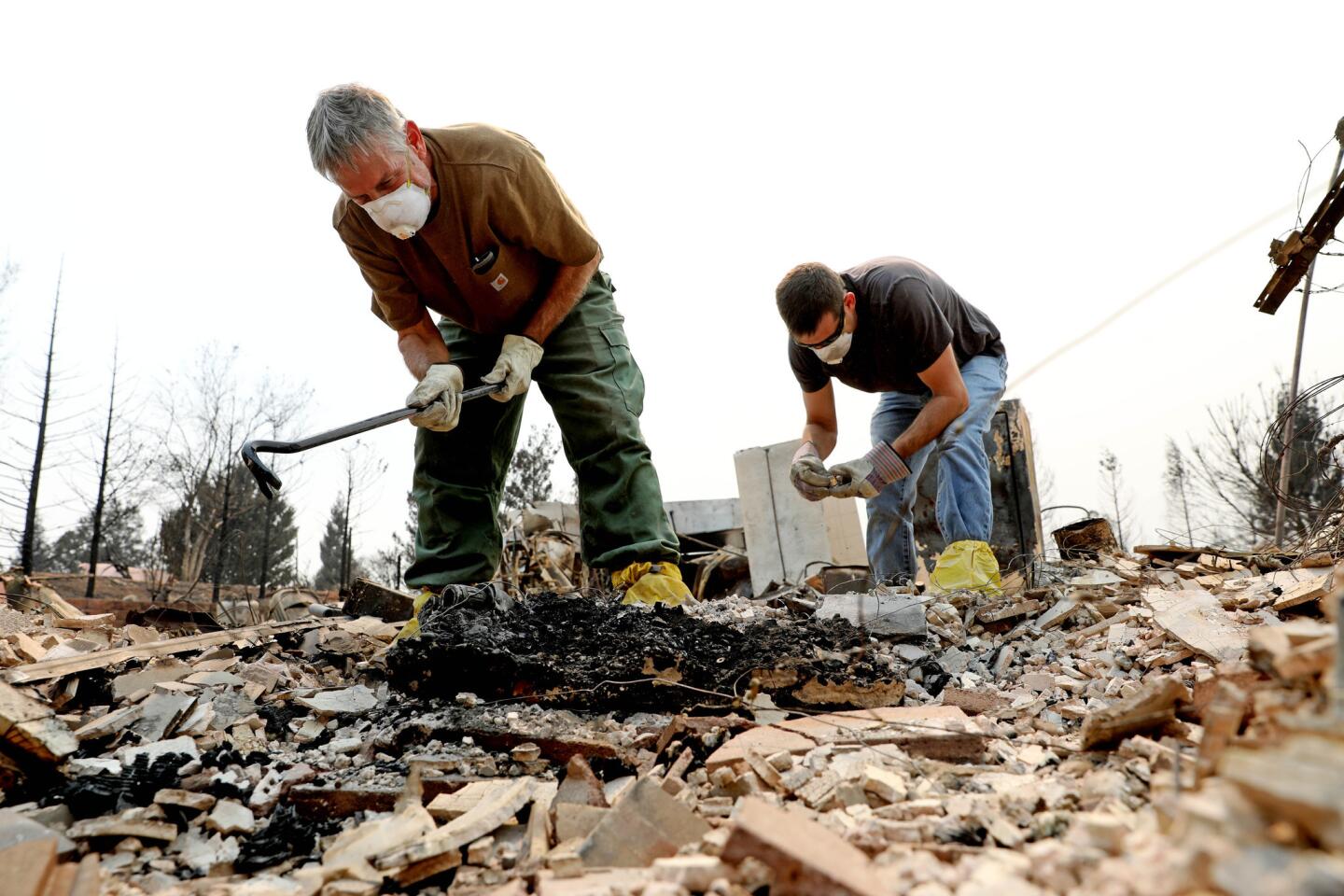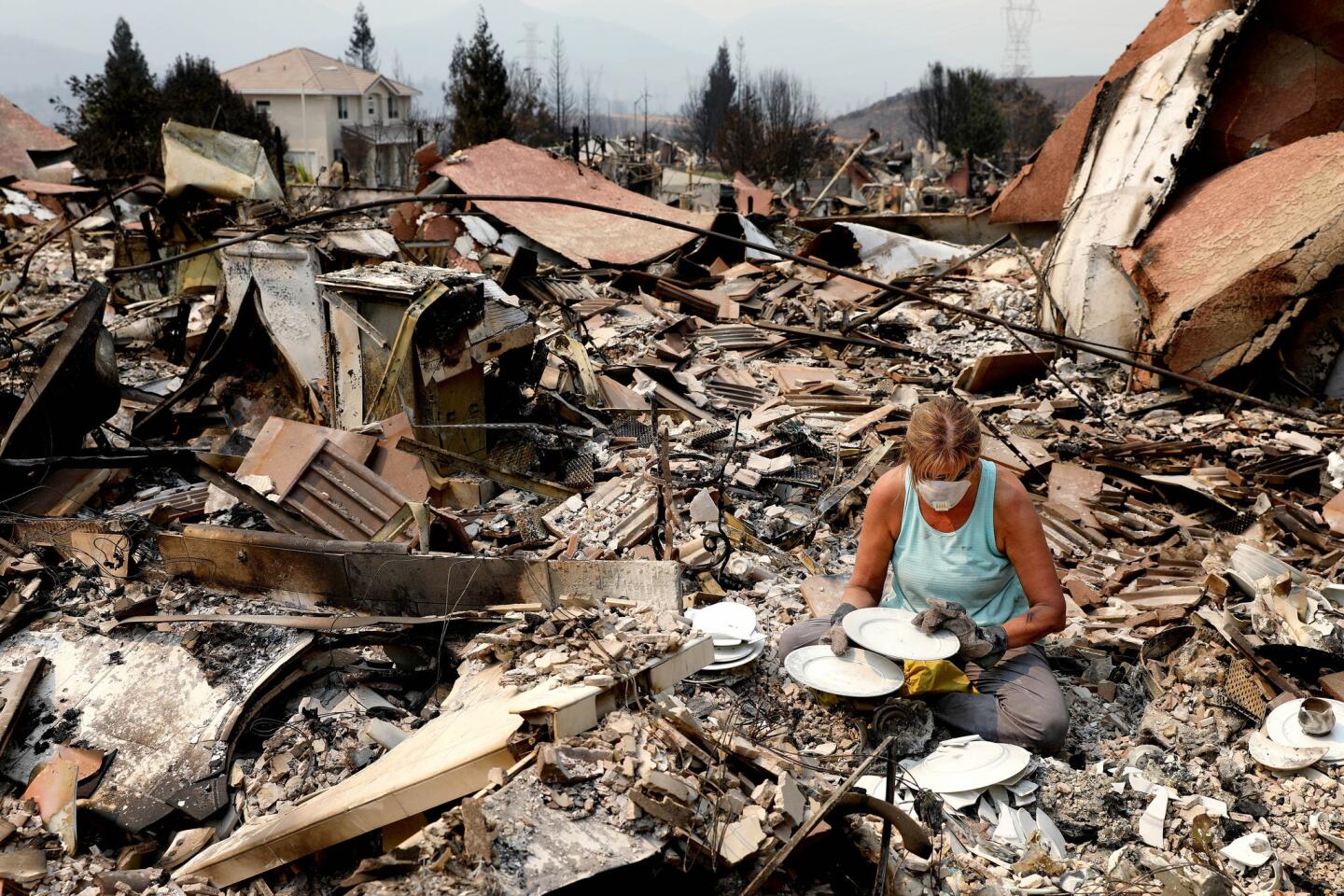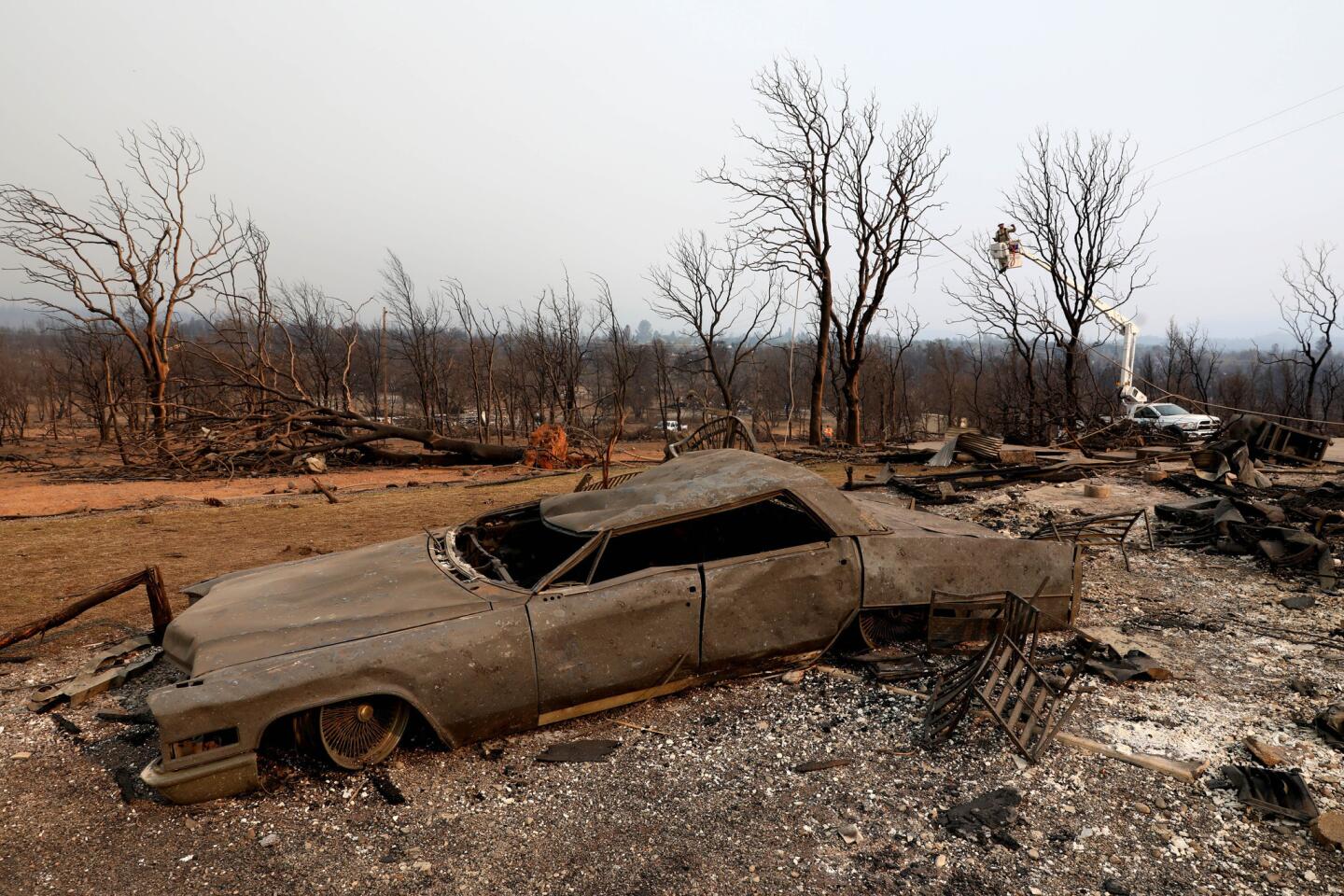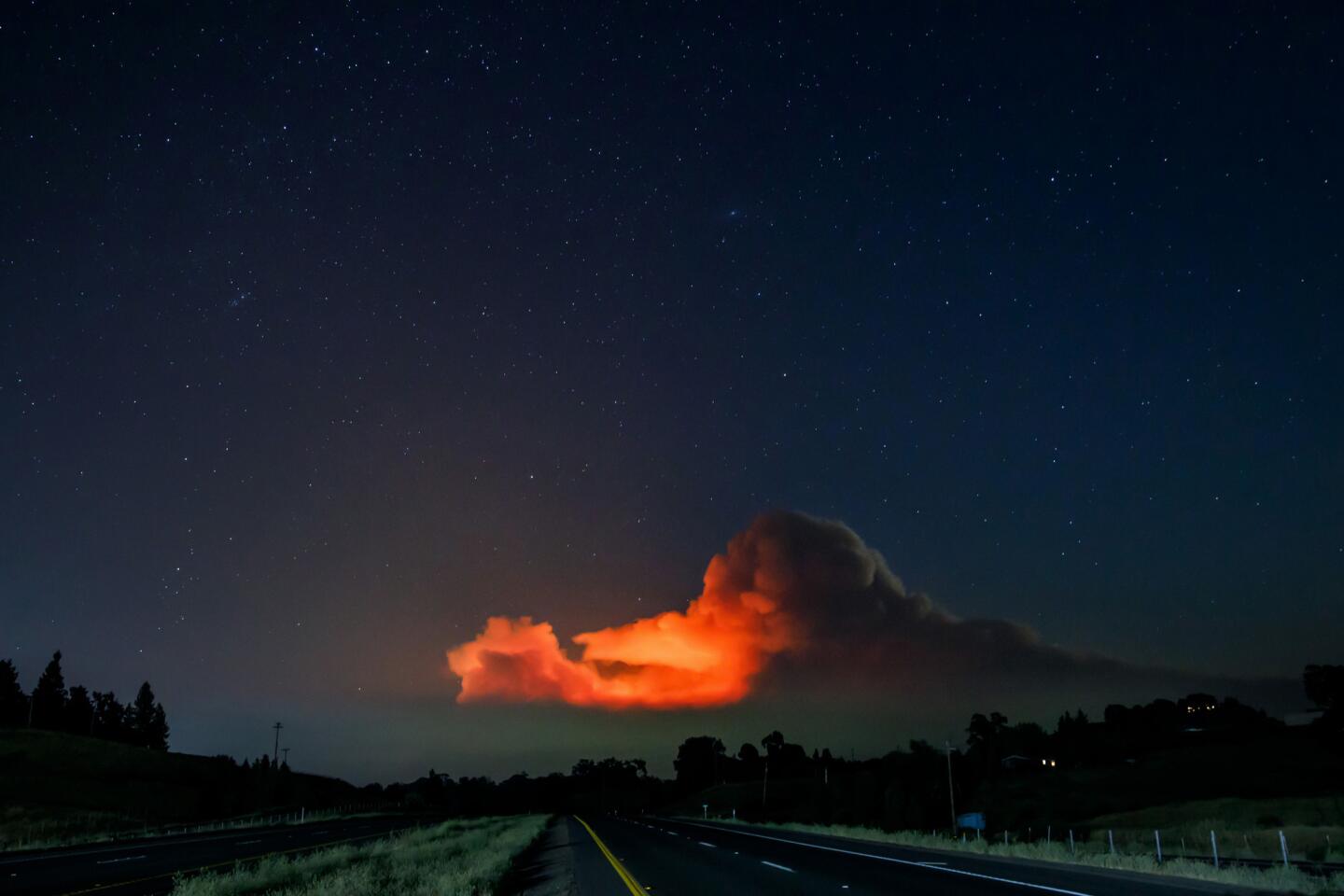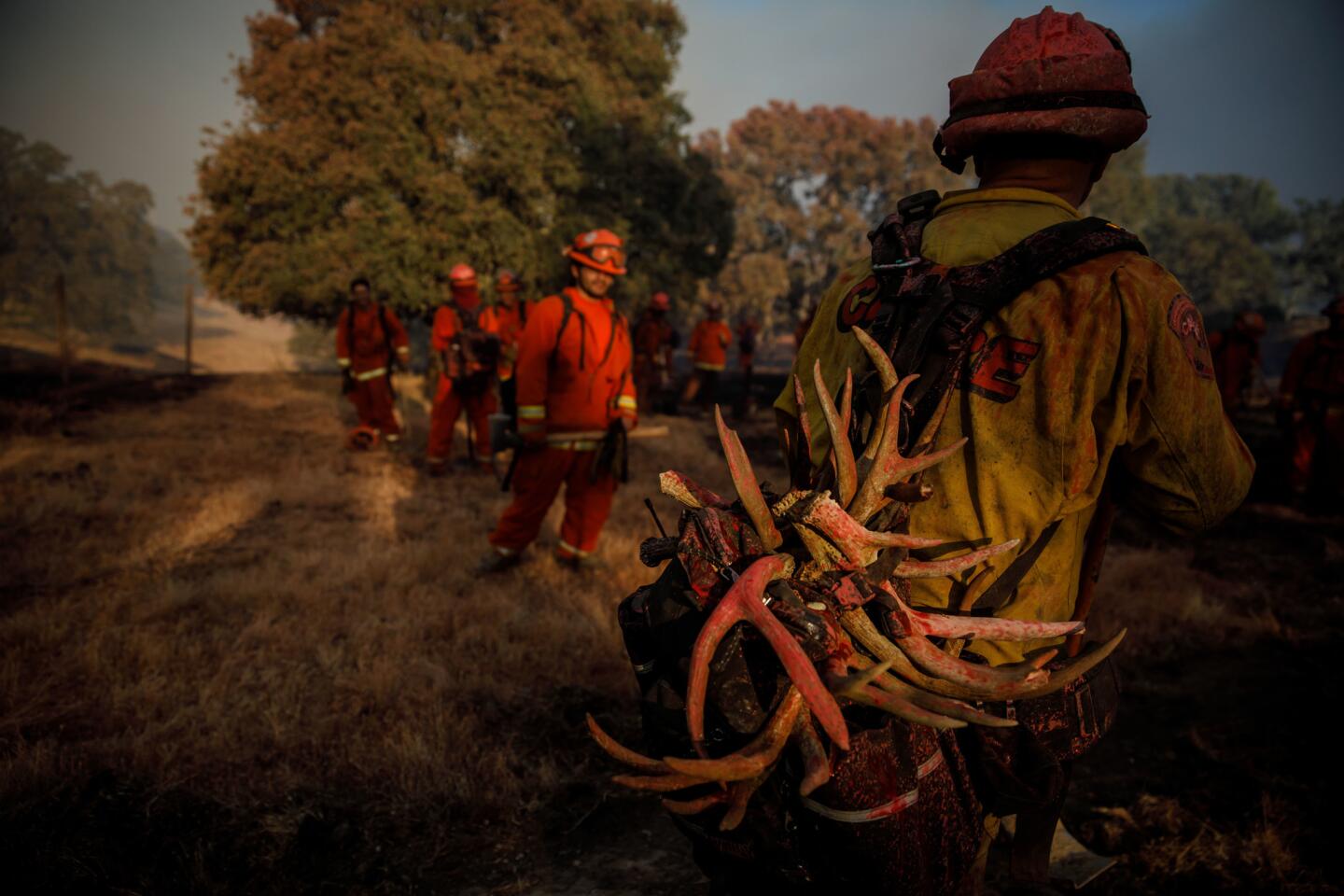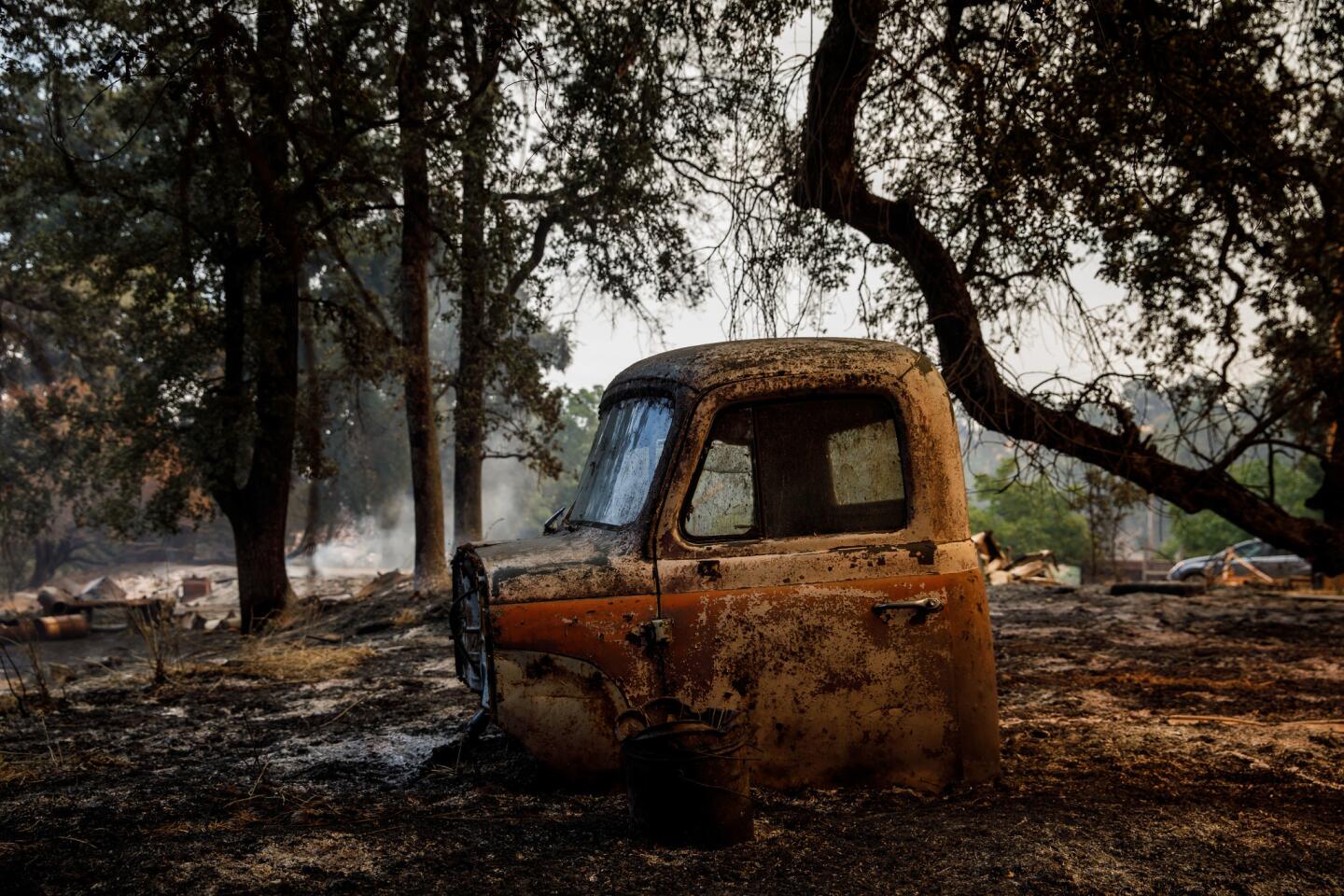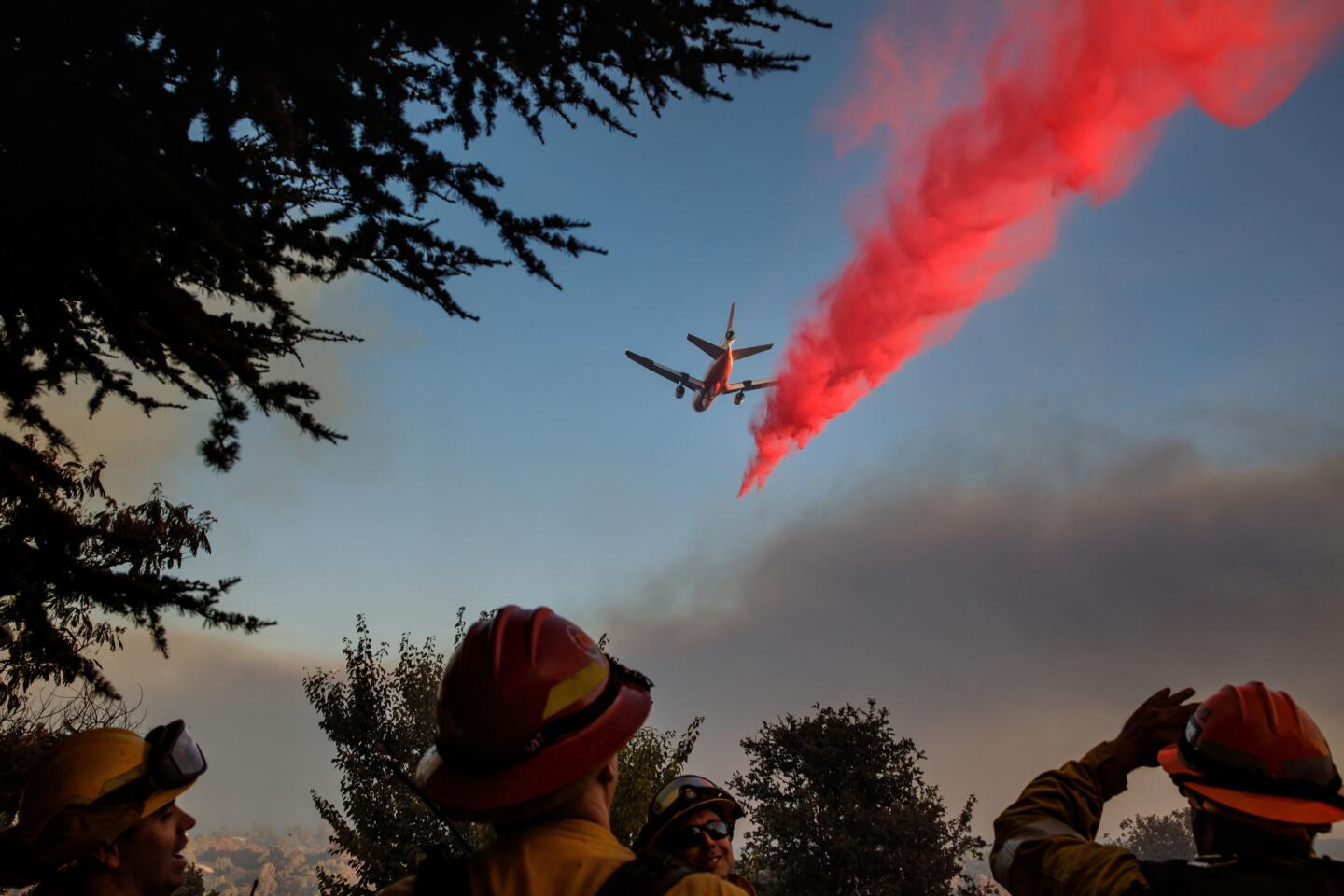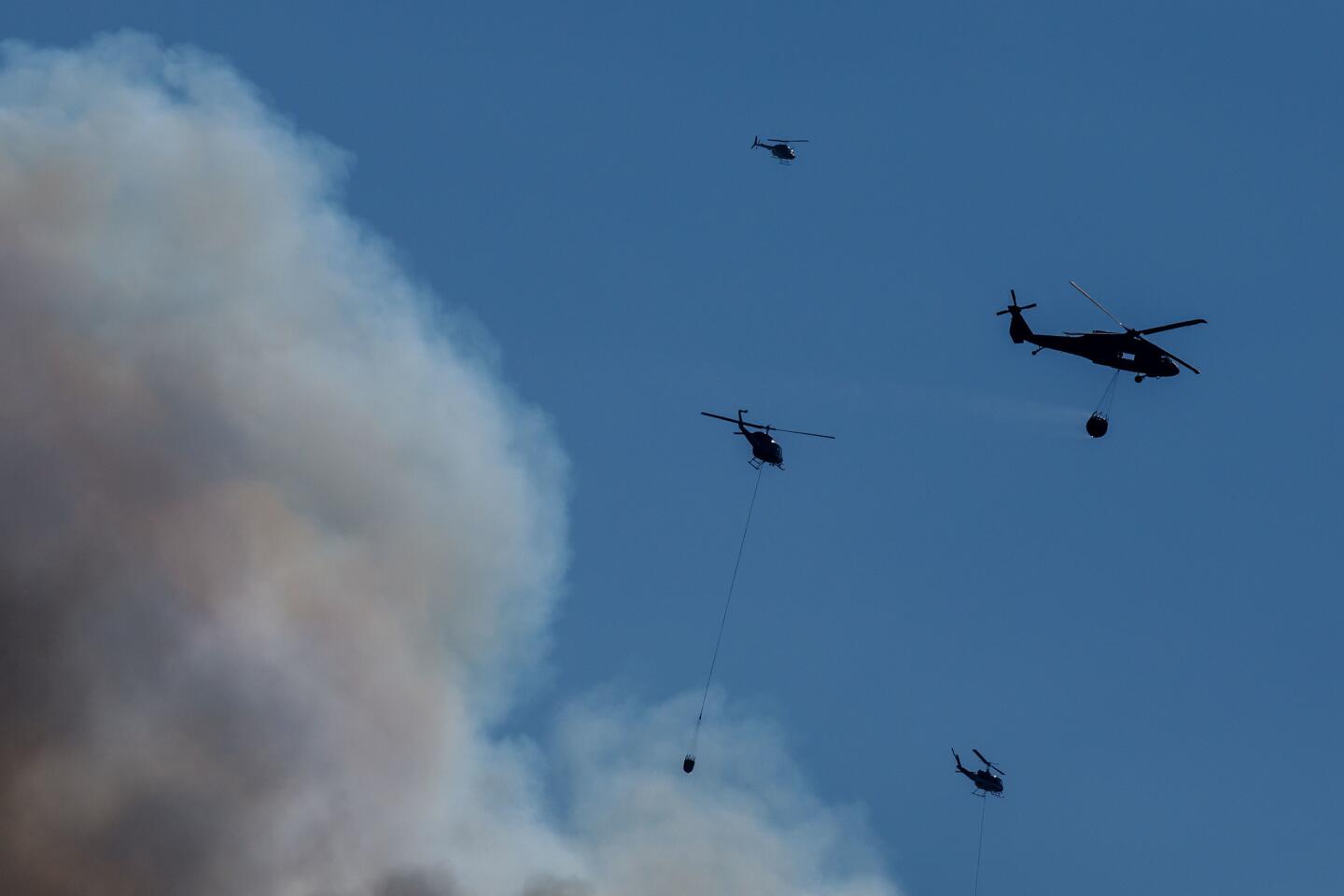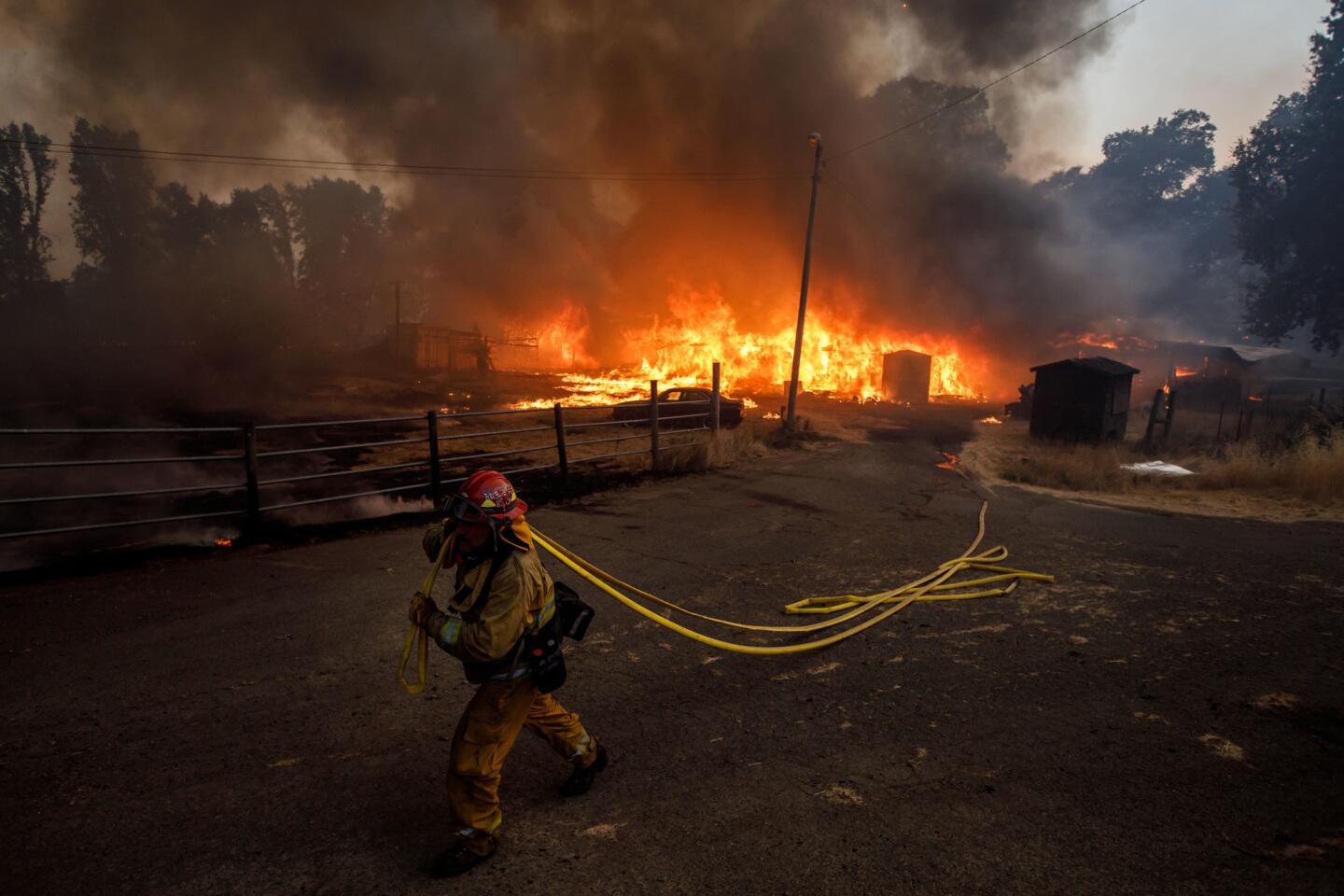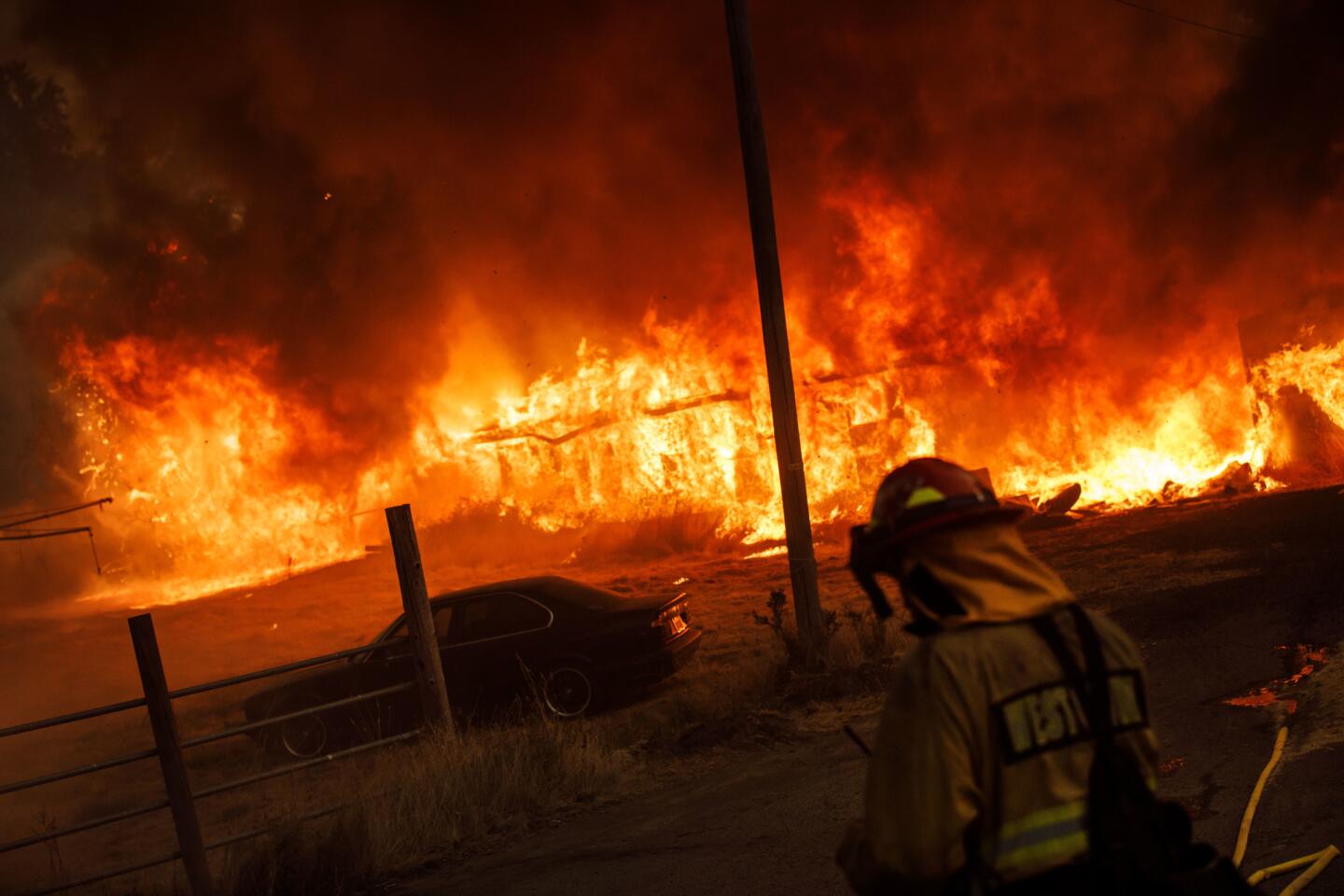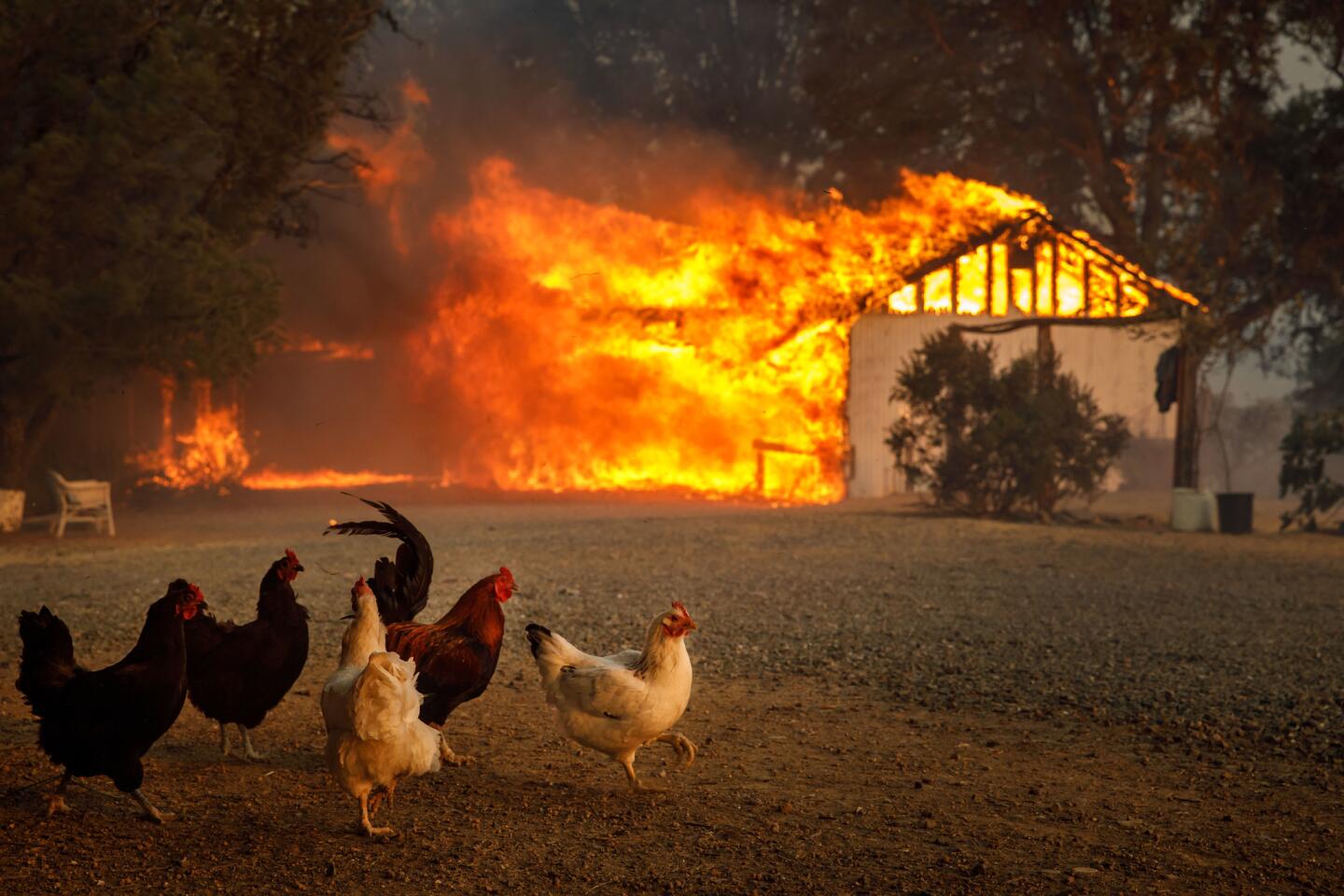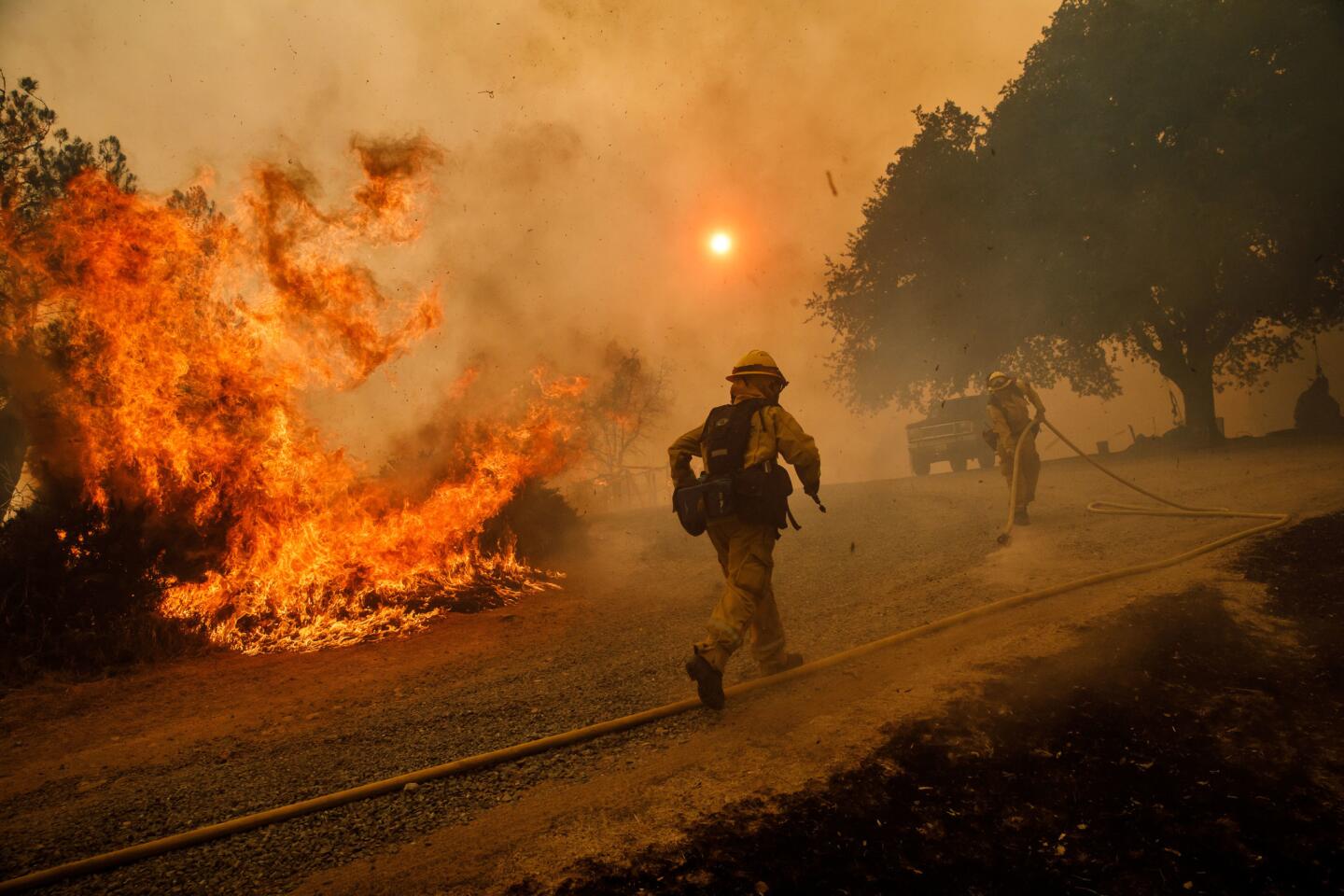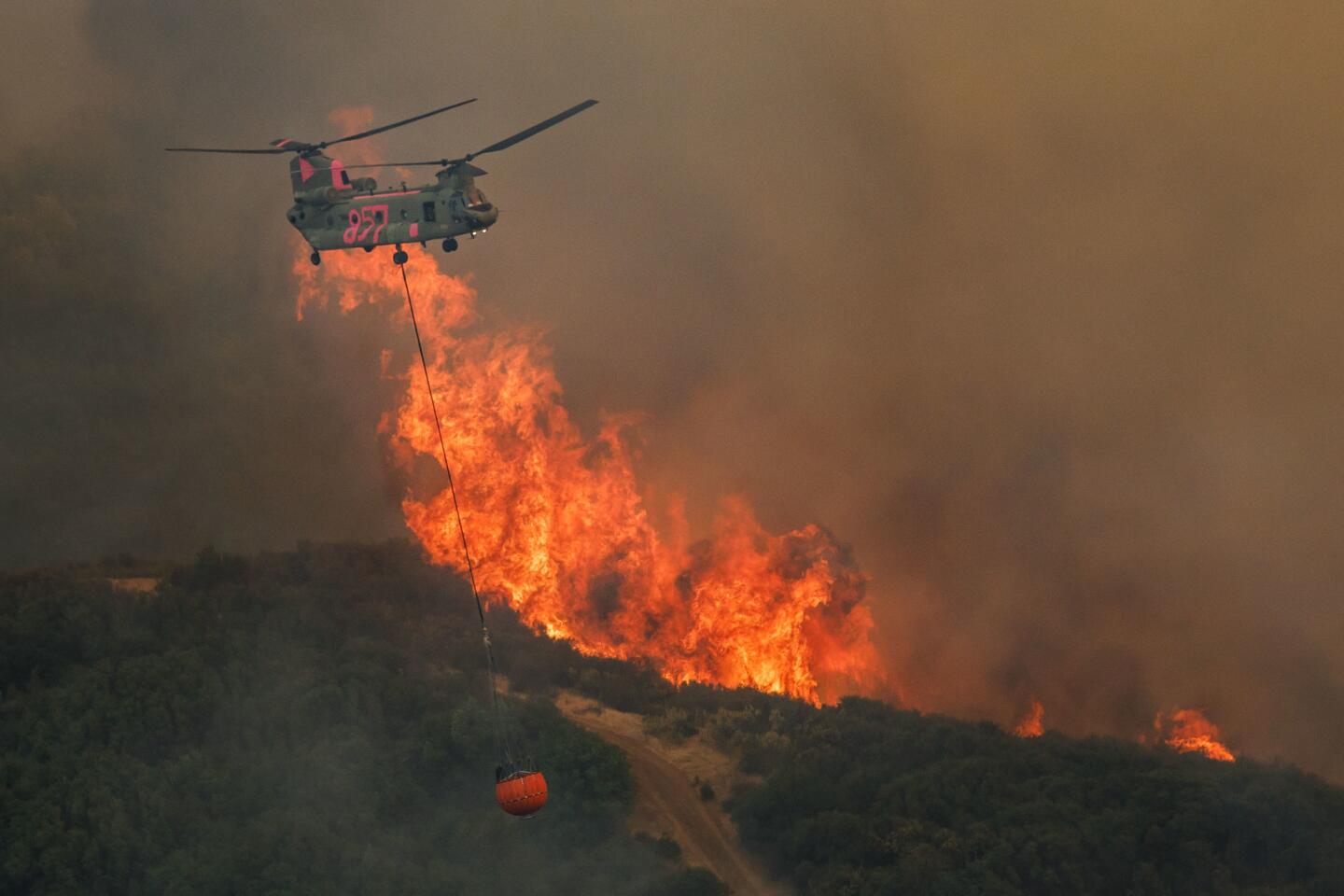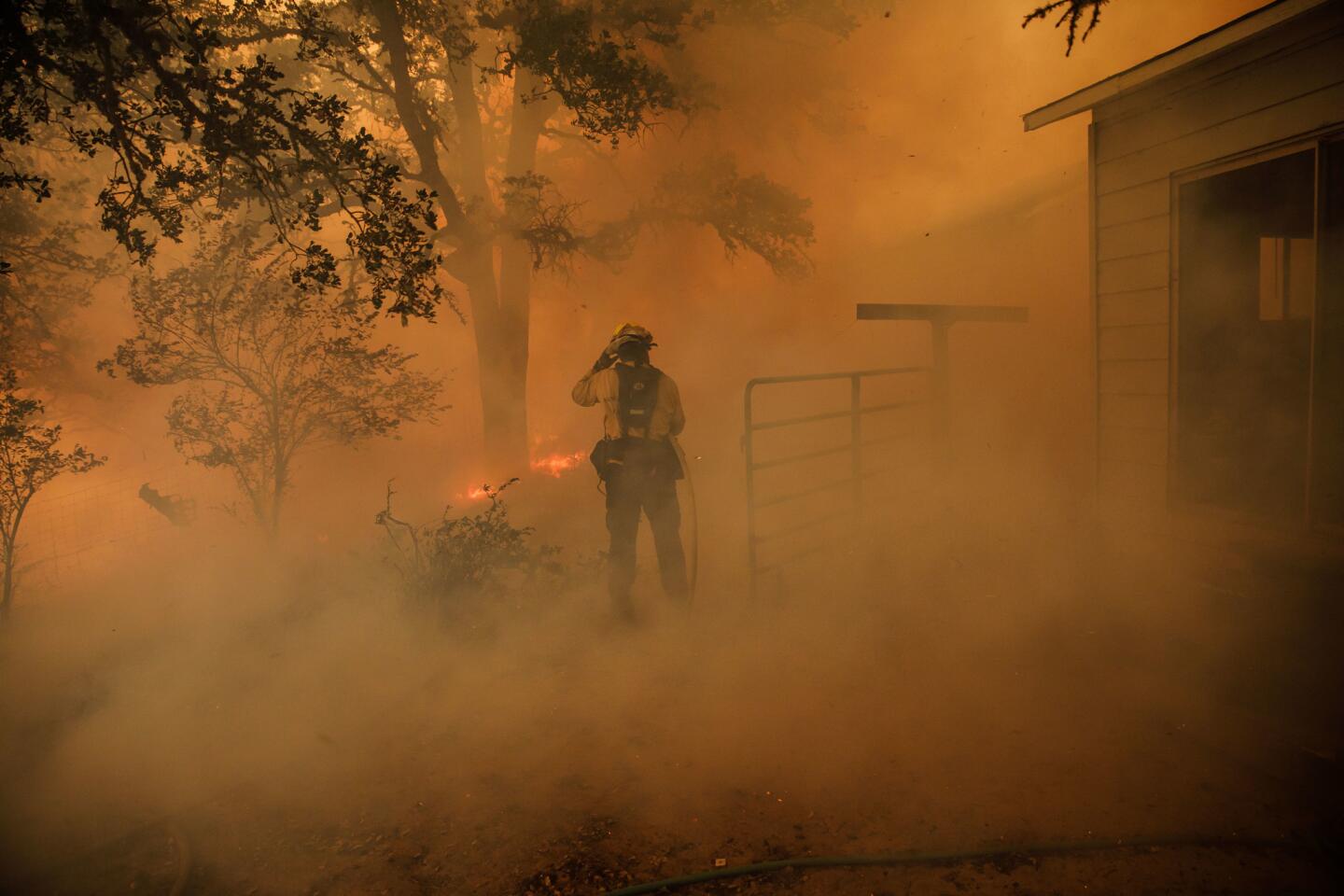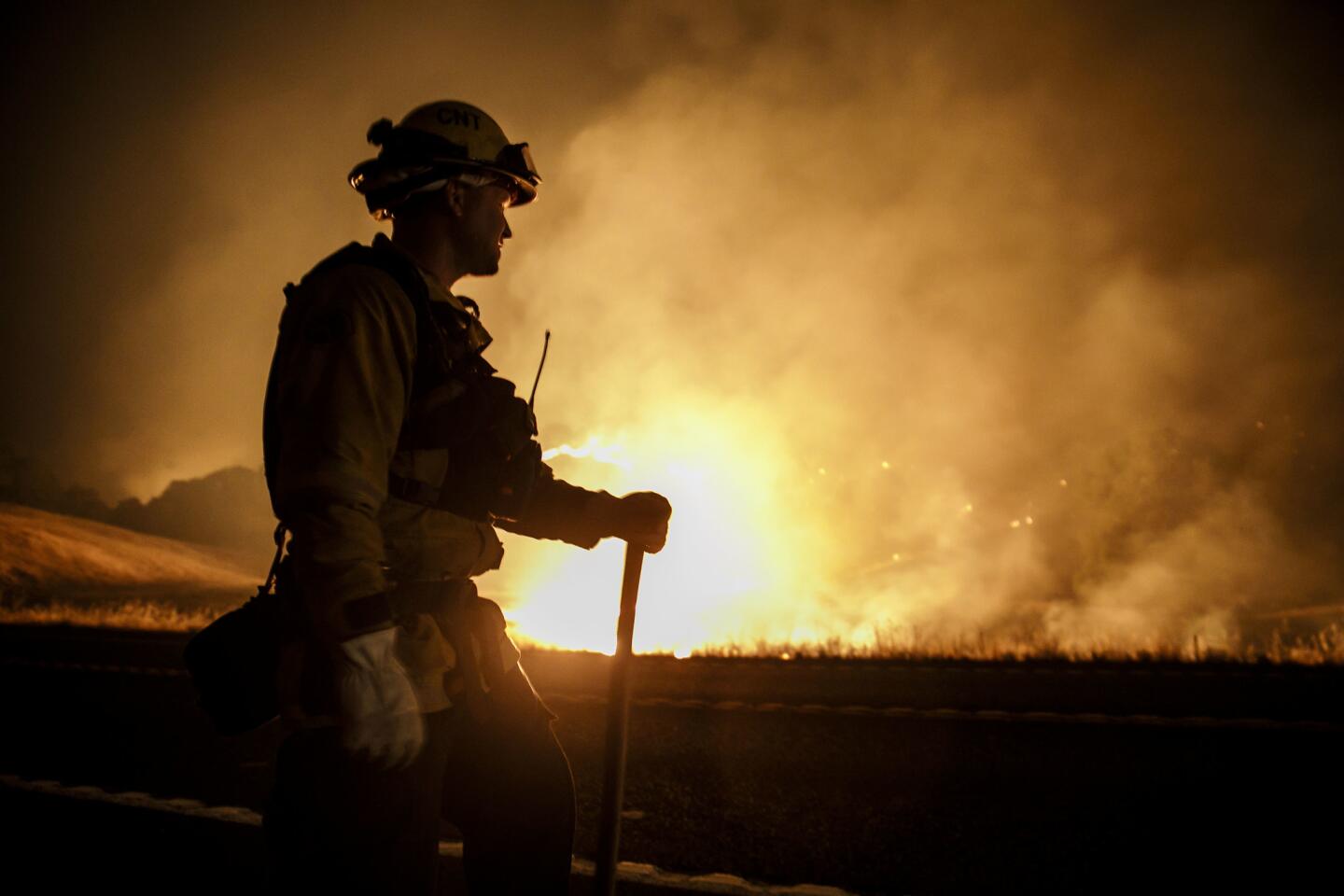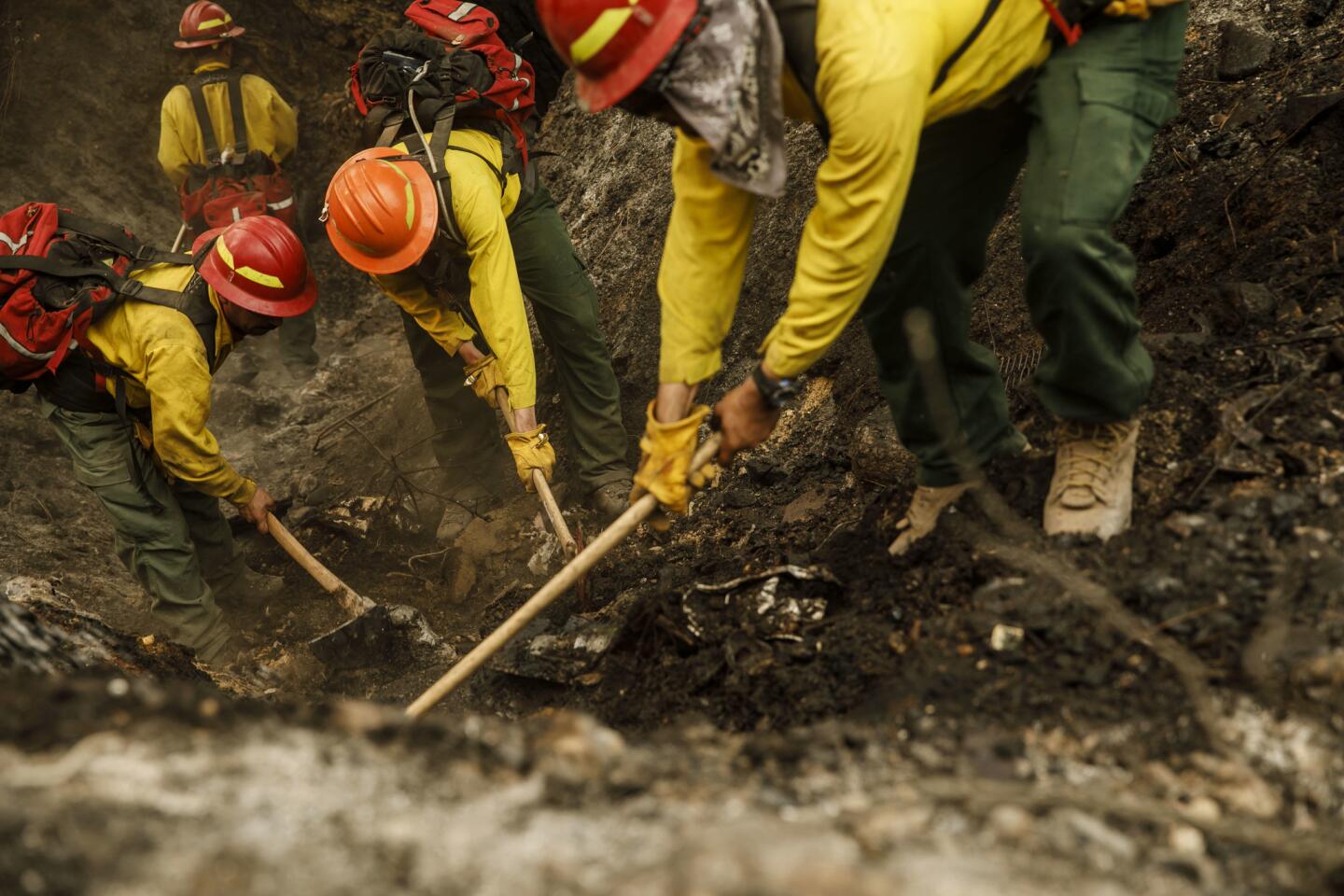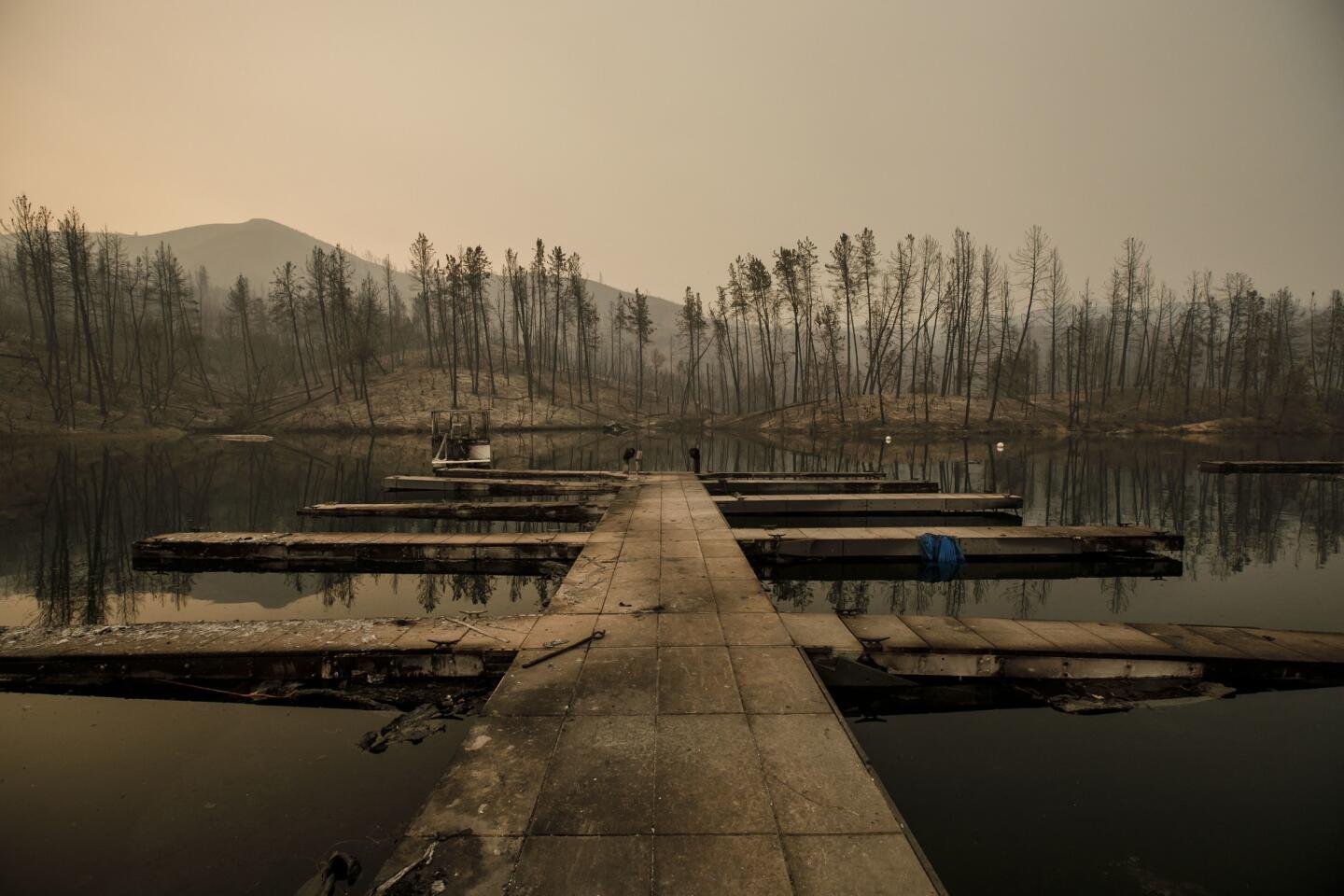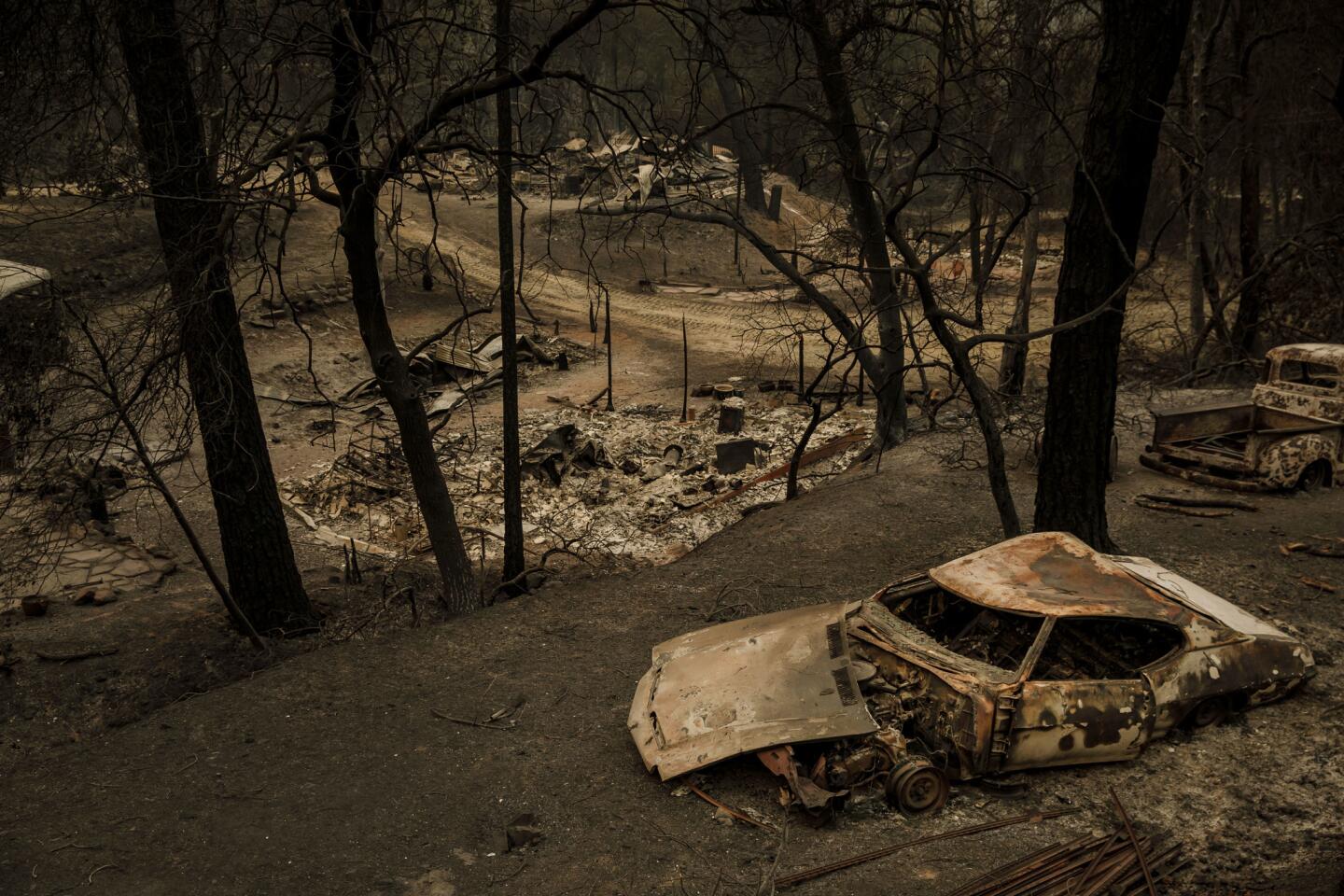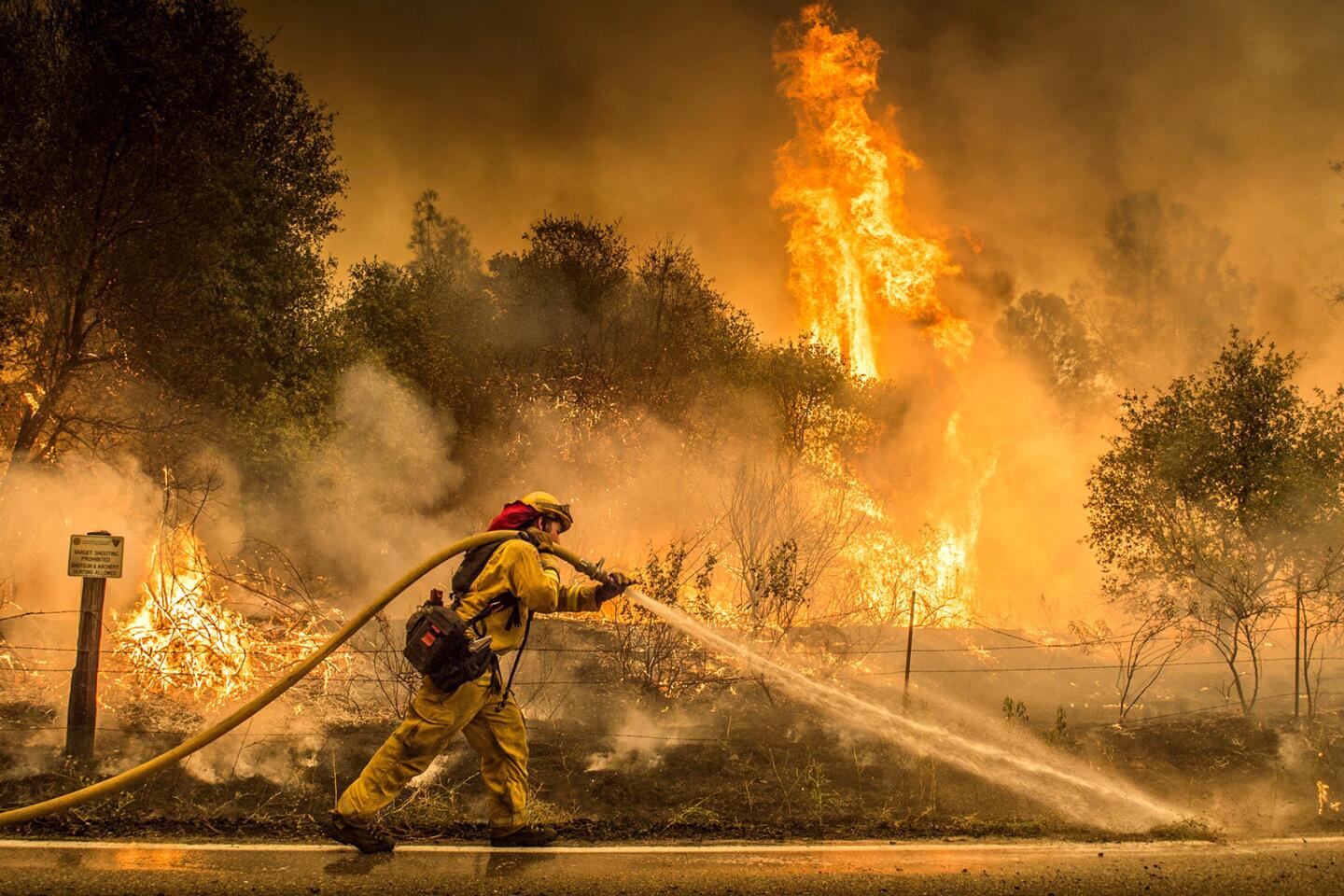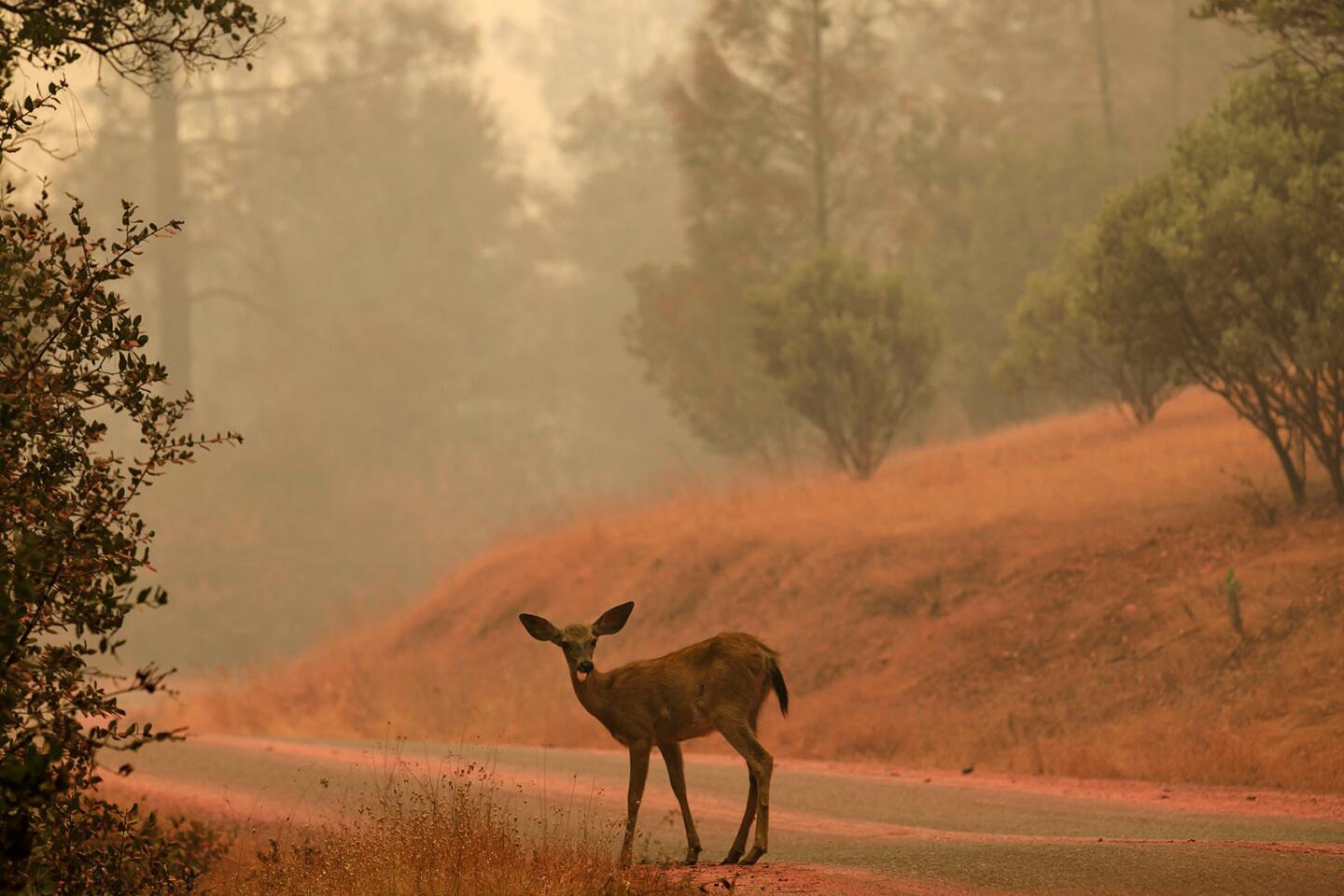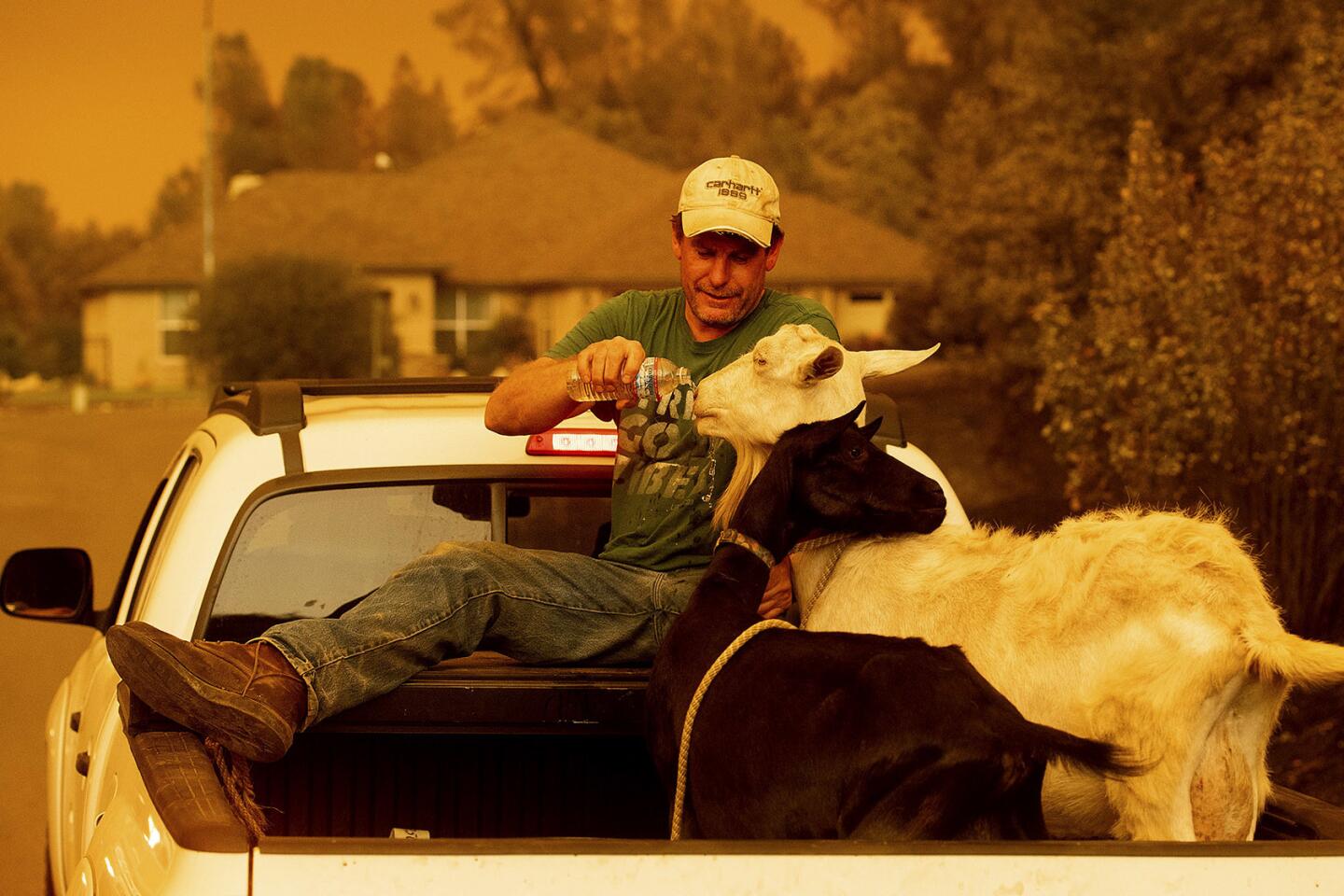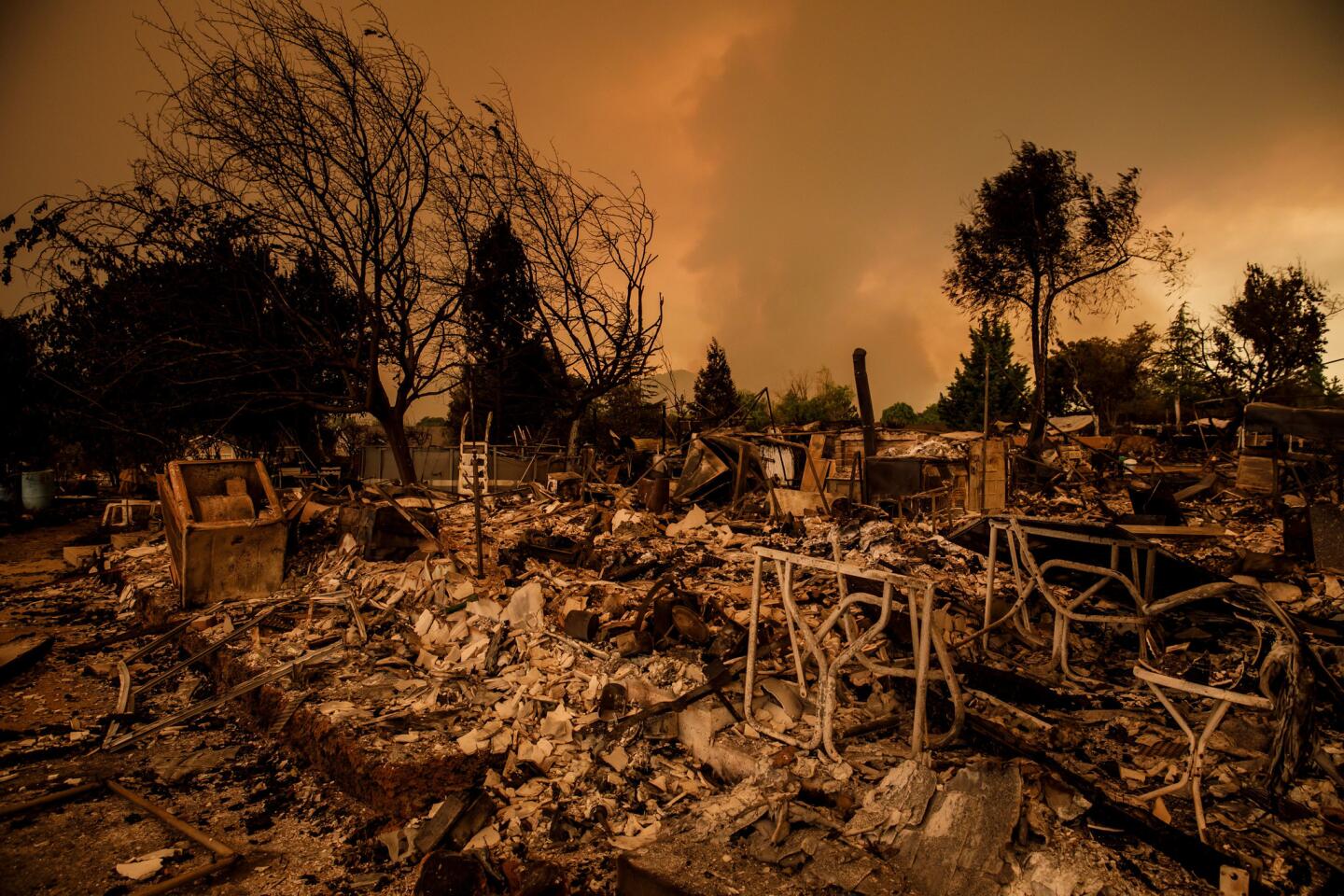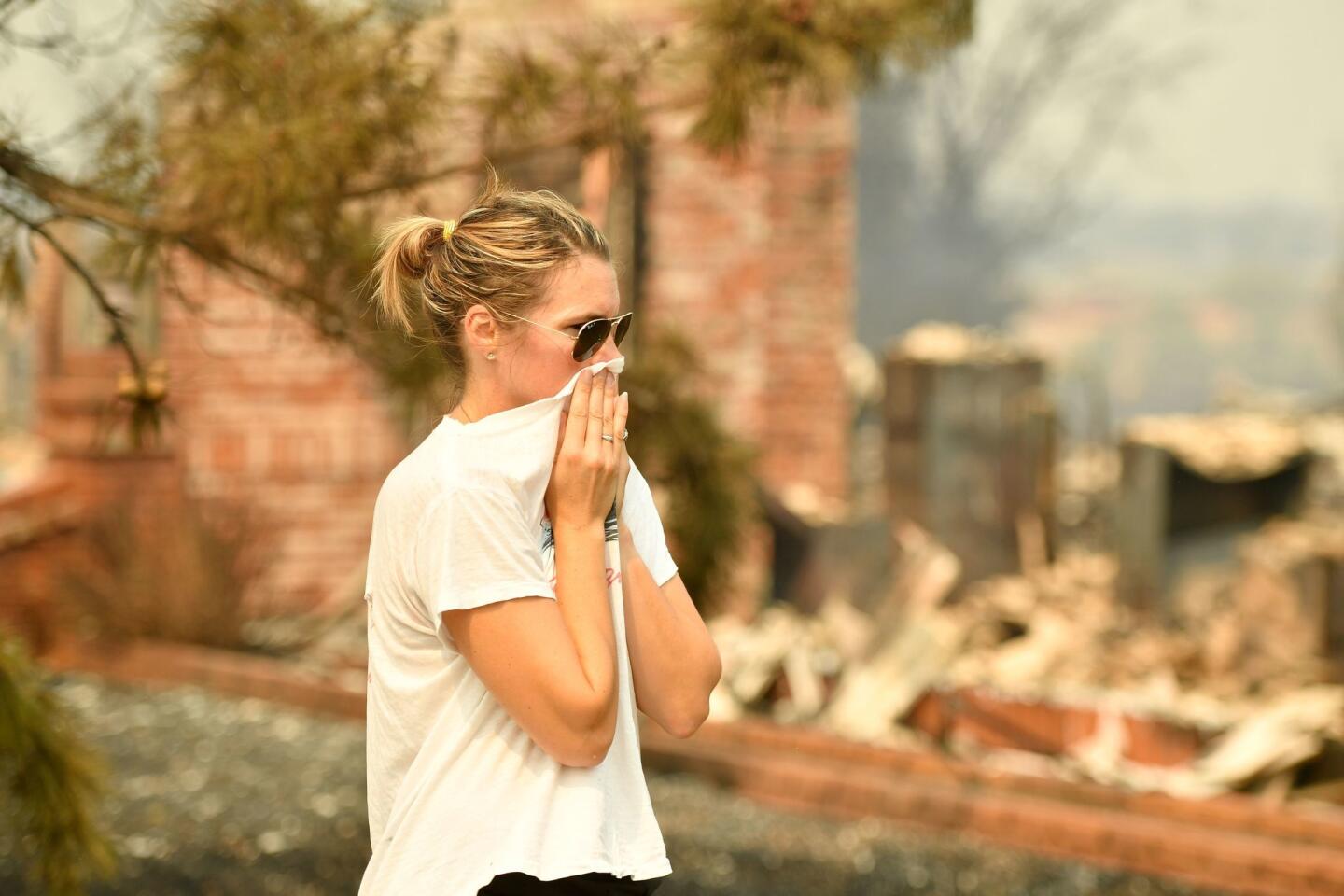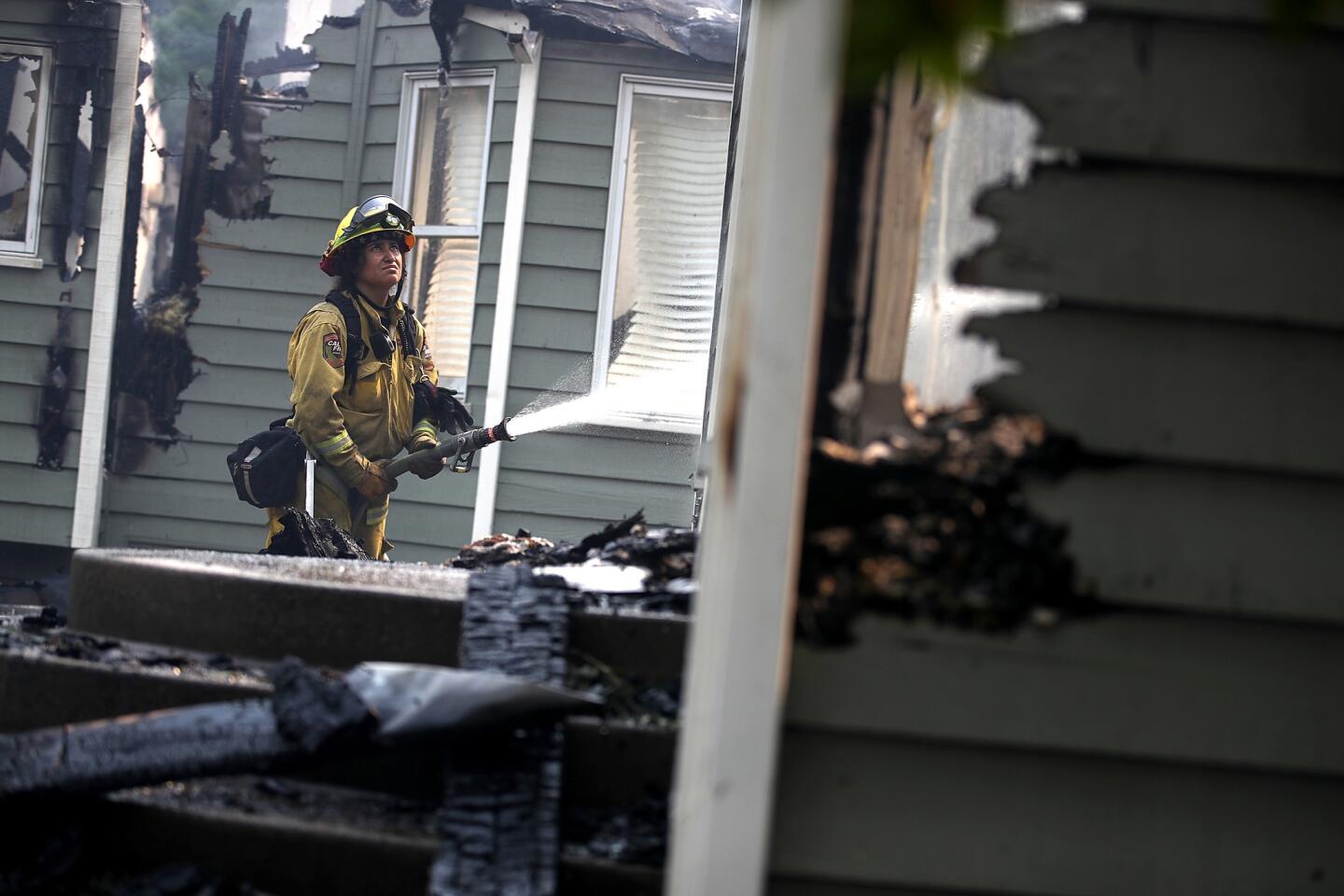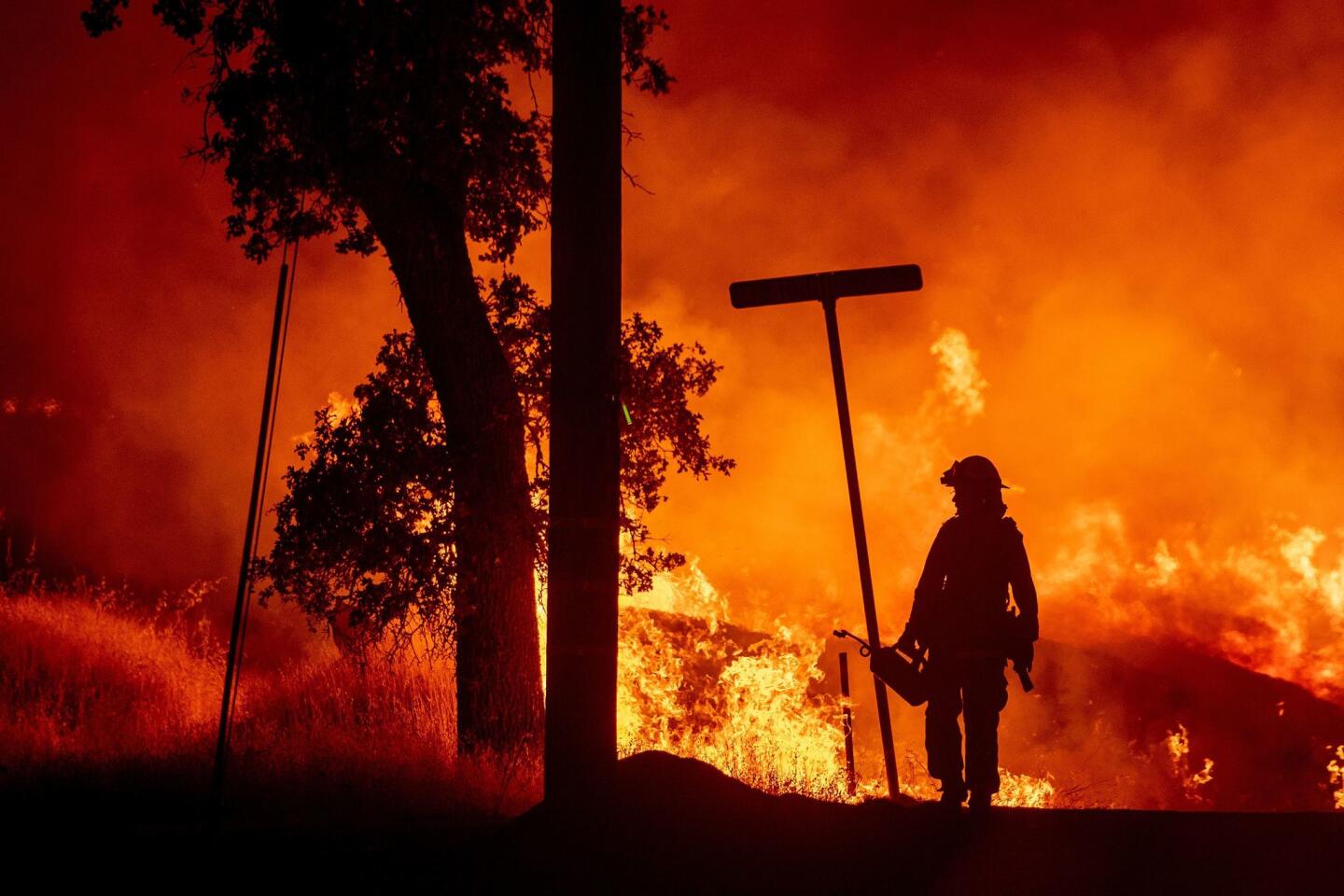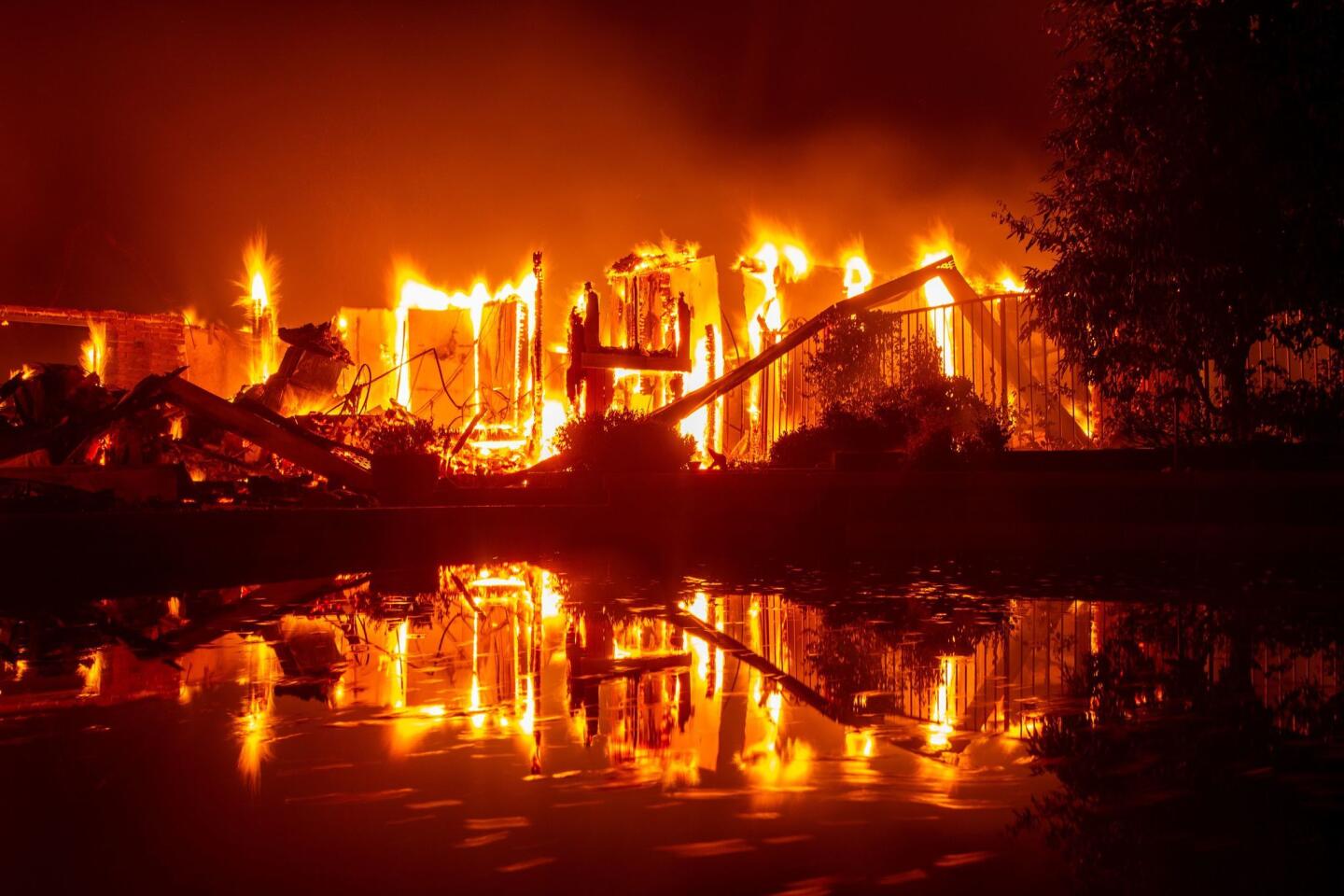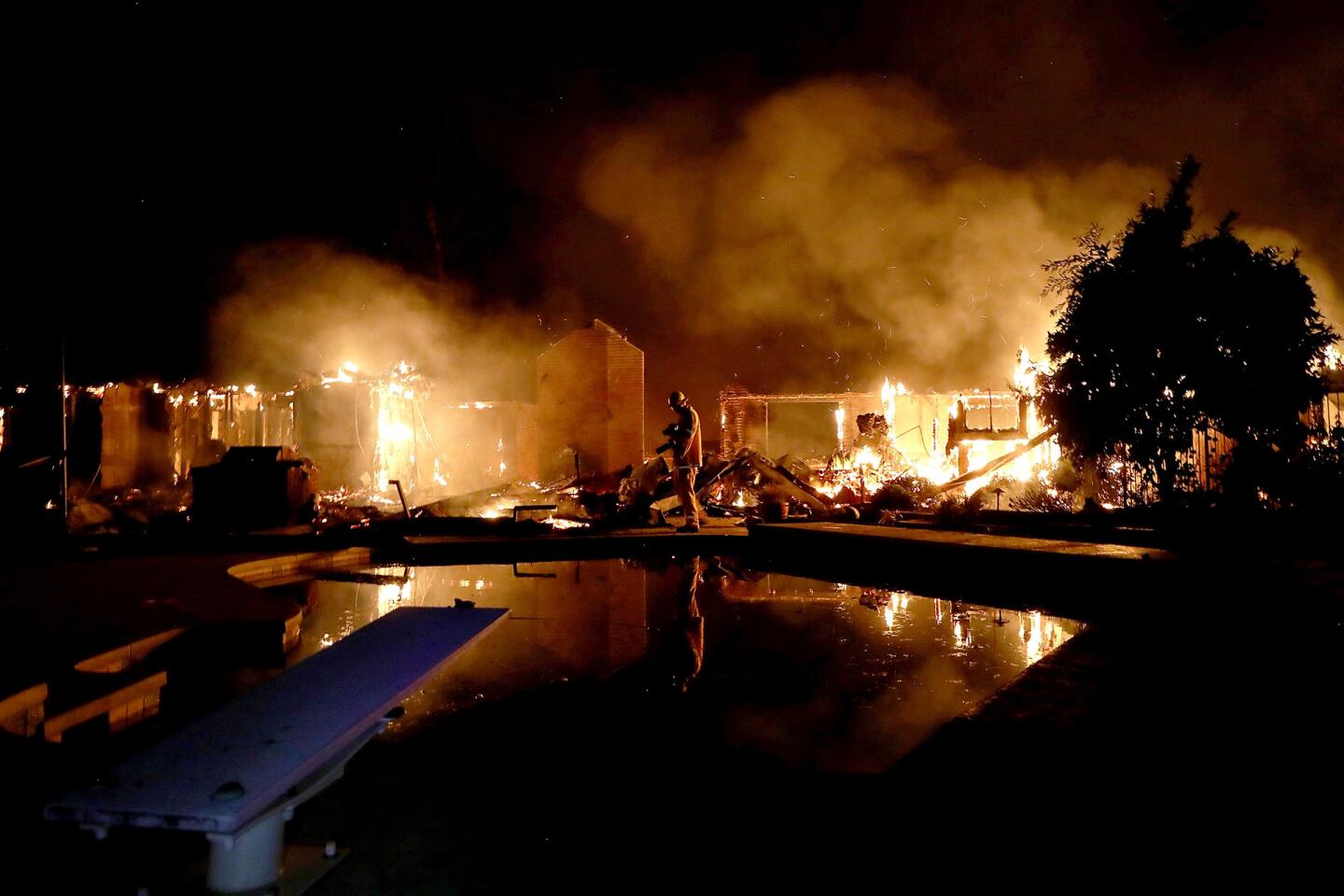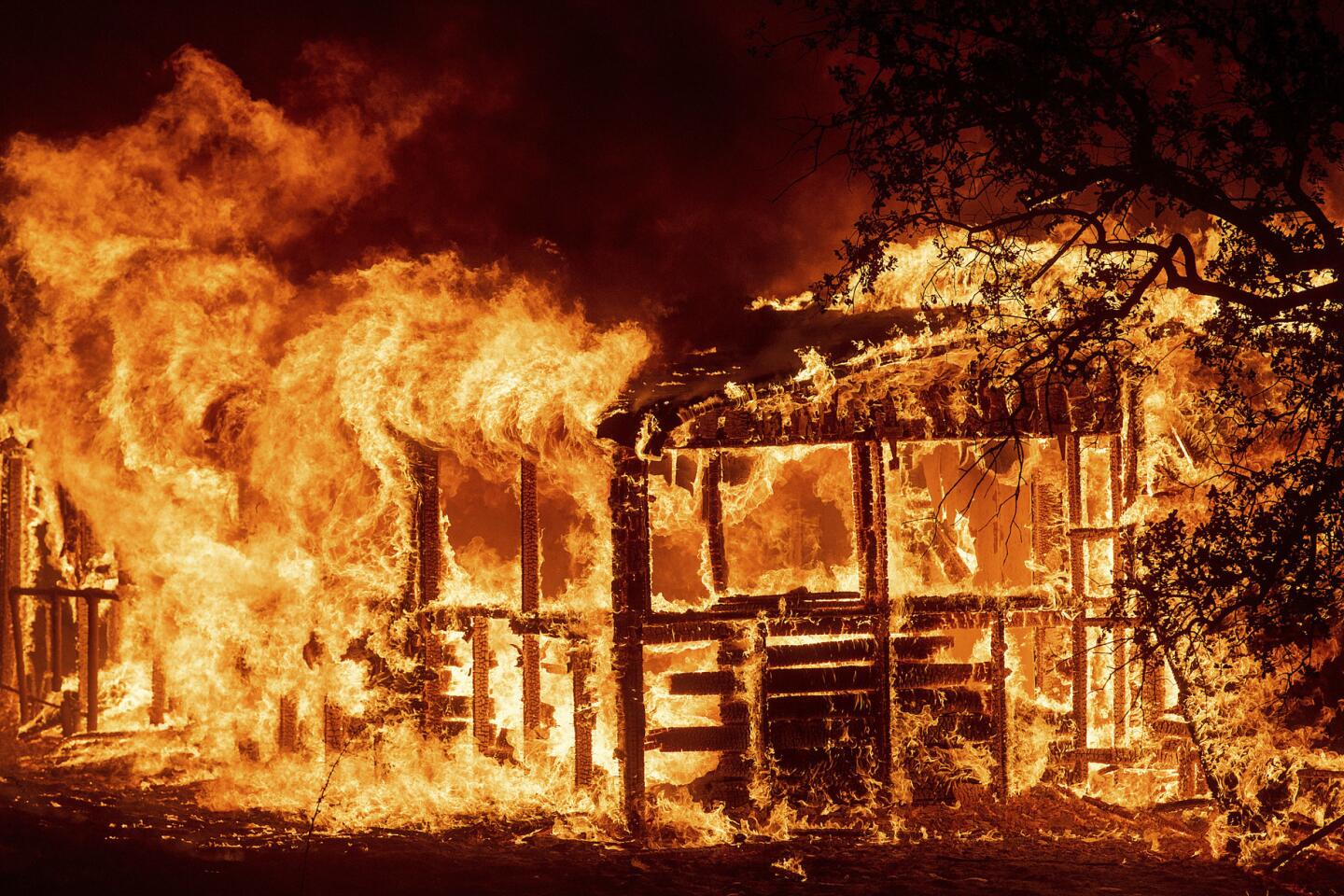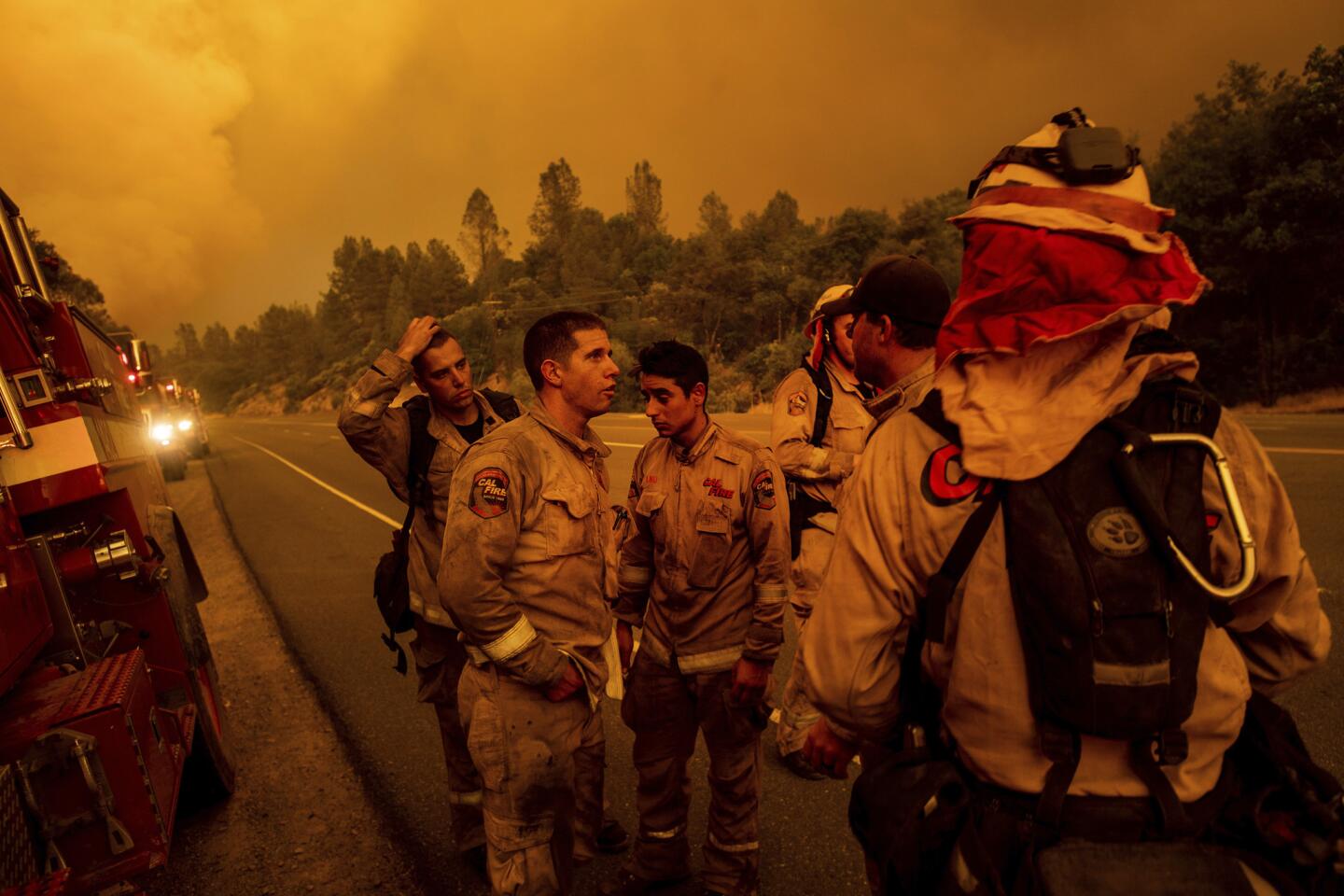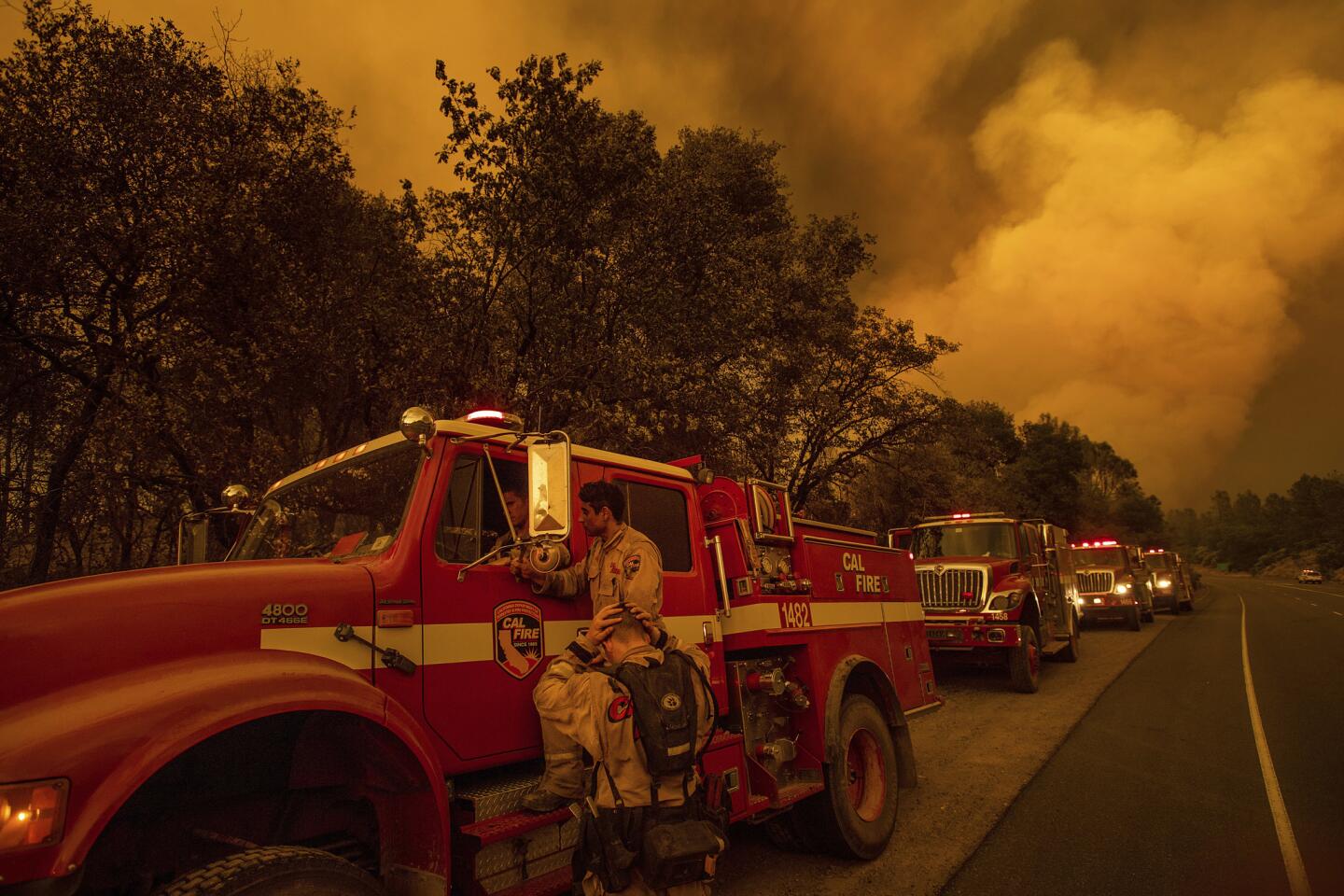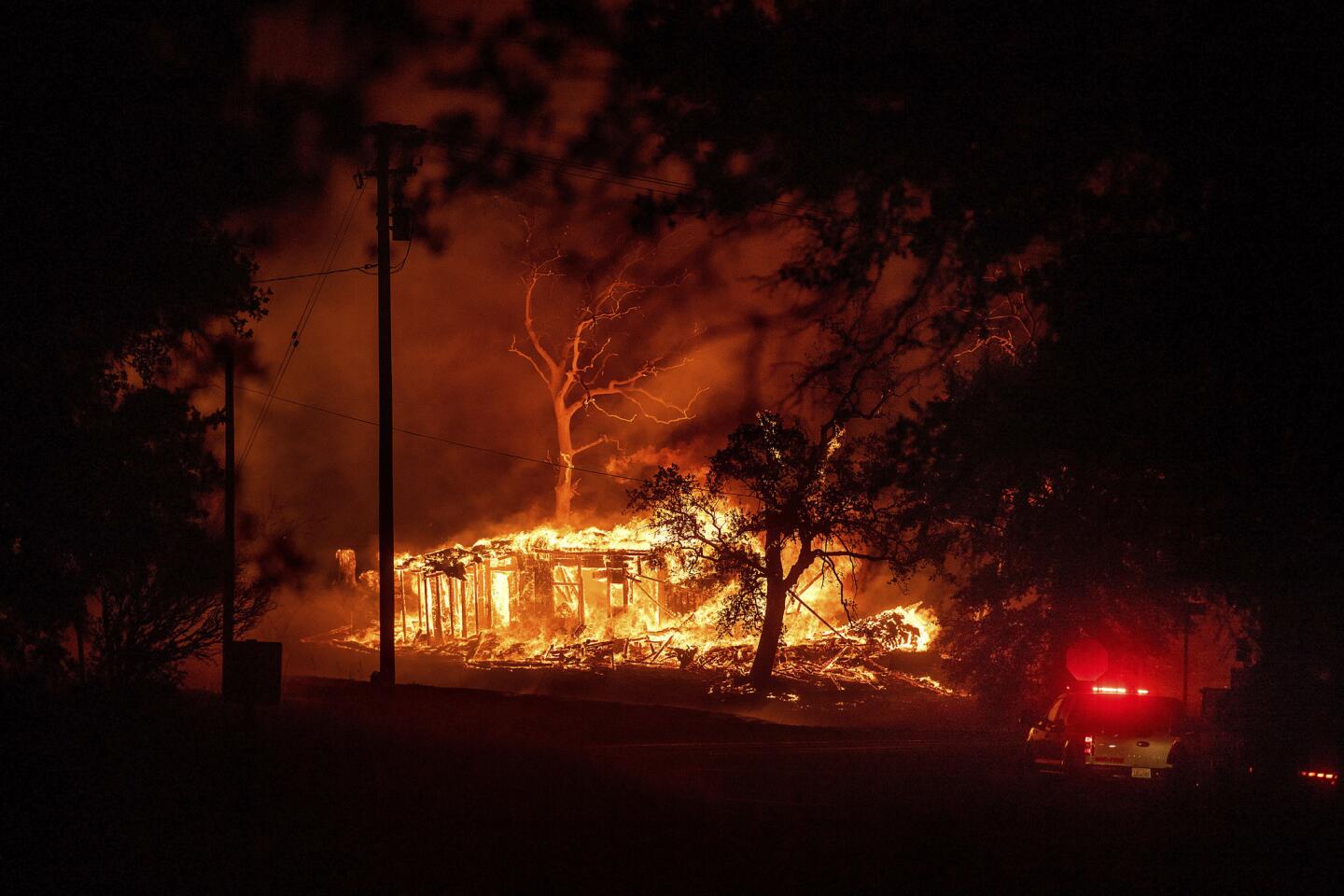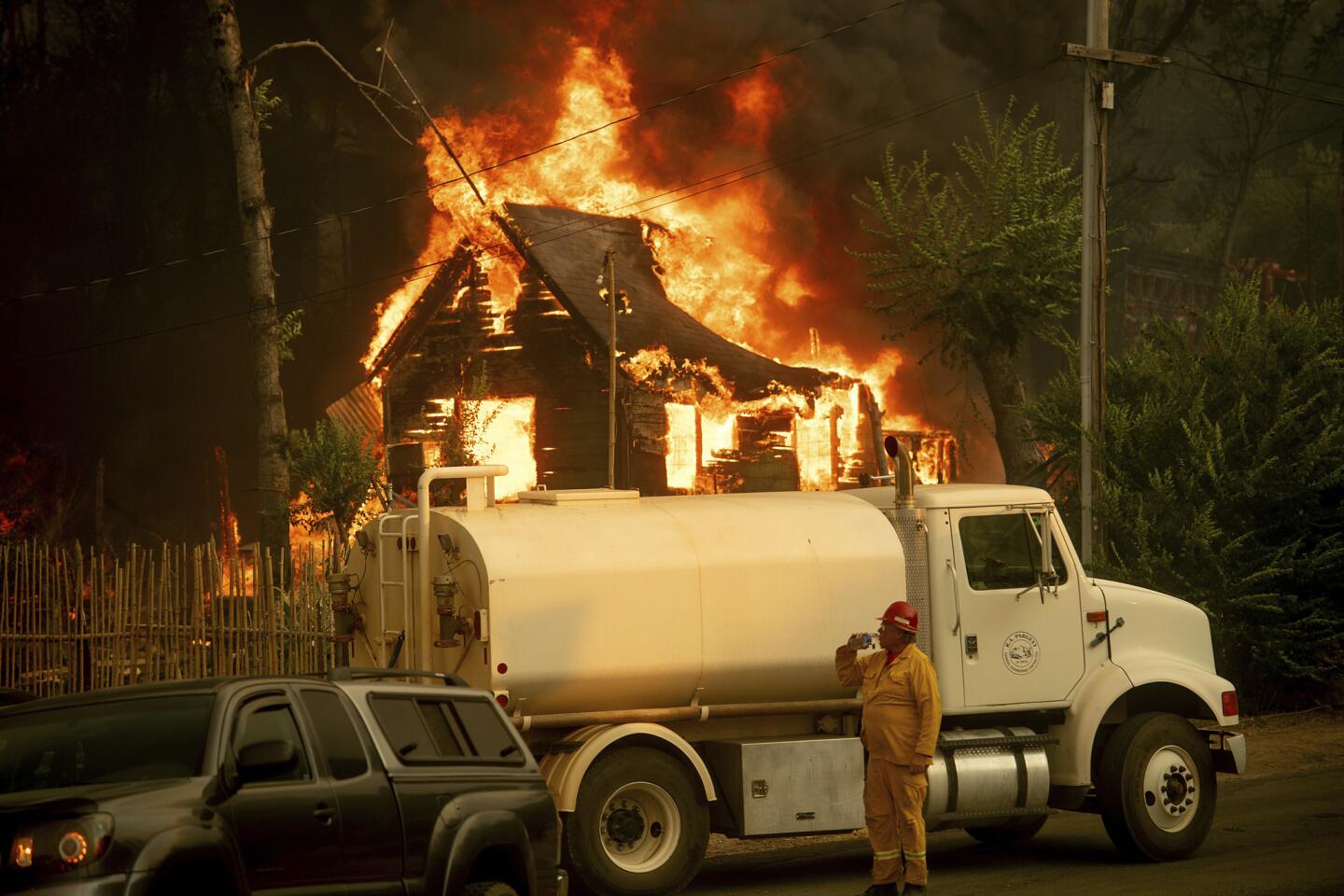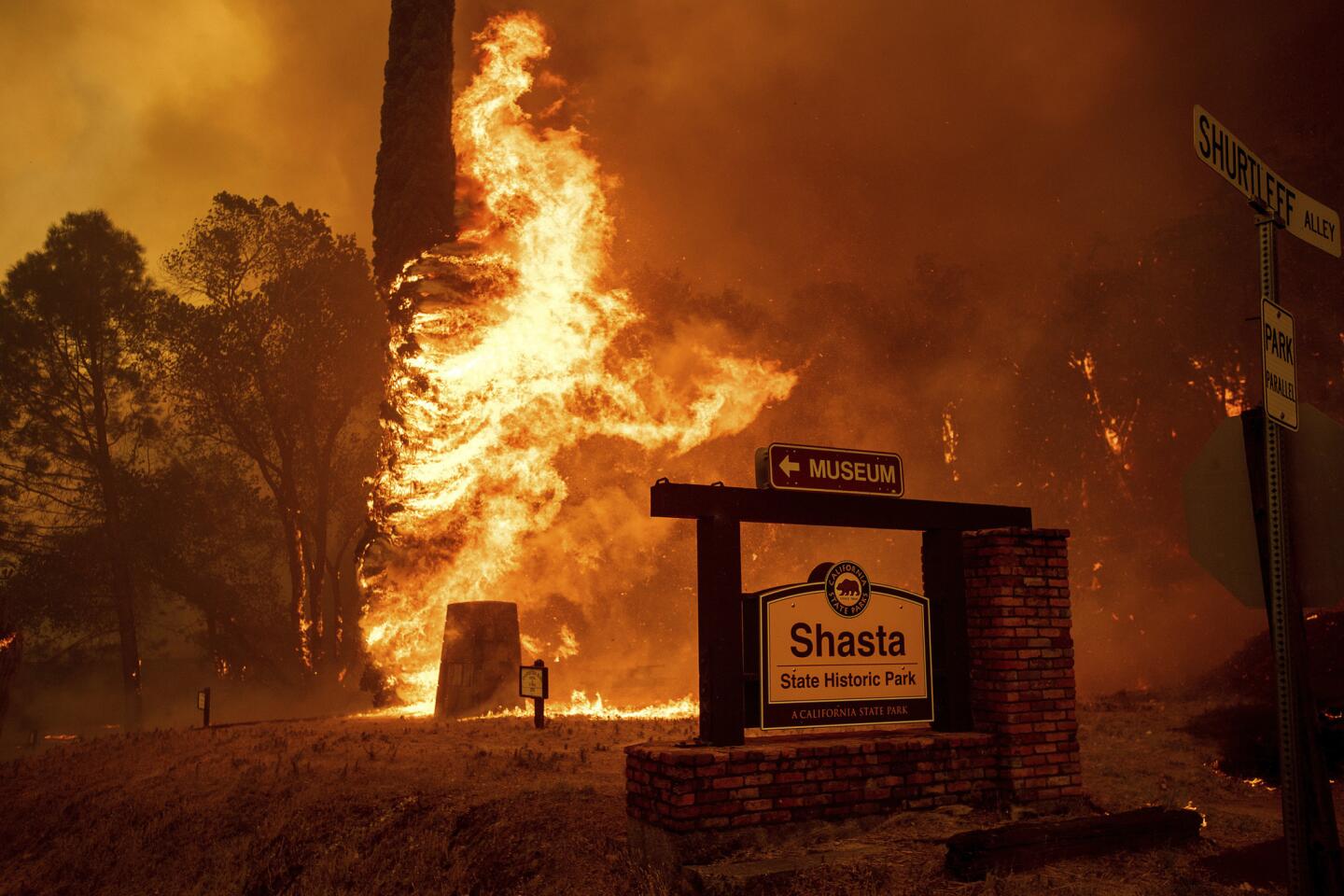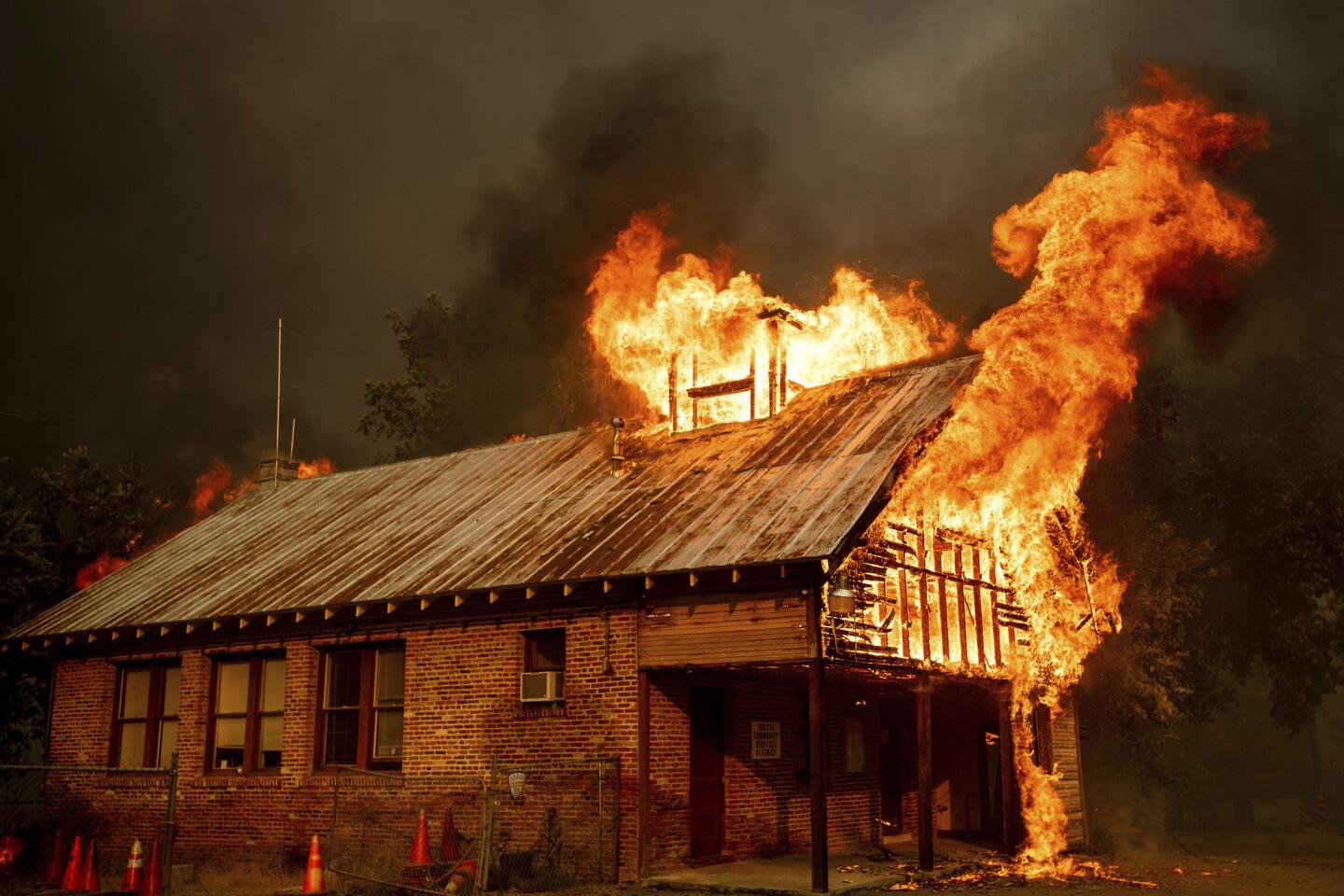Interior secretary blames intensity of California wildfires on ‘environmental terrorist groups’
- Share via
Wildfires strike California every year. But they’re getting worse, causing deaths and uprooting communities. Who’s to blame for these increasingly destructive wildfires?
According to Interior Secretary Ryan Zinke, it’s “environmental terrorist groups.”
During a radio interview with Breitbart News, Zinke said that “environmental terrorist groups” are preventing the government from managing forests and are largely responsible for the severity of the fires. But fire scientists and forestry experts pointed out that climate change is the main factor behind the problem.
Zinke claimed during the interview that an overabundance of fuel load — things like twigs and leaves that make it possible for fires to burn — make fires more intense.
“There have been a number of instances where environmental groups have submitted petitions to the Bureau of Land Management, halting companies from removing dead and dying timber until the BLM can sort through each petition point,” Department of the Interior spokesman Faith Vander Voort said in an email. “These actions halt proper forest management and leave the West vulnerable to incredible devastation.”
But Monica Turner, an ecologist at the University of Wisconsin at Madison, said this argument doesn’t address the bigger problem.
“Making minor changes in the fuels [which] you then have to do repeatedly for many years is not going to solve the bigger problem of having to face climate change,” she told the Washington Post. “We cannot clear or thin our way out of this problem.”
While the devastation has gotten significantly worse, people living in wildland-urban interface, communities next to natural areas, make the severity of the fires more palpable.
“While these fires are a tragedy, its also an opportunity to rethink our fire policies on a broader level as well as how and where we build our homes,” Yana Valachovic, a forest management expert, told the Post.
Many took issue with Zinke’s refusal to acknowledge that climate change is a major factor in the California fires.
“This has nothing to do with climate change,” Zinke told NBC affiliate KCRA this month. “This has to do with active forest management.”
Research shows that human-caused climate change is a primary factor behind the recent increase in fire severity. A 2016 study published in the Proceedings of the National Academy of Sciences found that the heat and drought brought about by climate change was responsible for doubling the amount of land burned in the western U.S. between 1984 and 2015.
“There is a broad effort to deny the science of climate change and its links to the horrible wildfires in California and it’s just not accurate,” Leah C. Stokes, professor of environmental and political science at UC Santa Barbara, told the Post.
“I don’t think the scale of reducing fuel load is a realistic policy proposal, that would magically stop all fires in the western United States. Forests burn and it is going to get a lot worse unless we do something about climate change.”
Environmental groups also took issue with the labeling of “terrorist.”
“Zinke’s inability to understand basic fire science is leading him to turn to dangerous and inflammatory quips,” said Athan Manuel, director of Lands Protection Program at the Sierra Club.
“We do think we need to do sensible forest management. But this should be driven by science and practicality. This does not seem be a priority for the secretary.”
President Trump was last week criticized for tweeting that “bad environmental laws” magnified the fires.
Trump’s claim was quickly debunked by experts on Twitter.
“California’s forests are burning because of past severe drought and current extreme temperatures and weather, worsened by human-caused #climatechange, which you think, in your fantasy world, doesn’t exist,” tweeted Peter Gleick, a scientist and co-founder of Pacific Institute.
“Oh, and one last thing,” Gleick added. “#Water in California rivers isn’t being ‘diverted’ into the Pacific. It all used to flow there. What little #cawater reaches the sea now is all that’s left after farms and cities have diverted most of it out of rivers.”
See full coverage of the California wildfires »
More to Read
Get the L.A. Times Politics newsletter
Deeply reported insights into legislation, politics and policy from Sacramento, Washington and beyond. In your inbox three times per week.
You may occasionally receive promotional content from the Los Angeles Times.
